

Tomball ISD
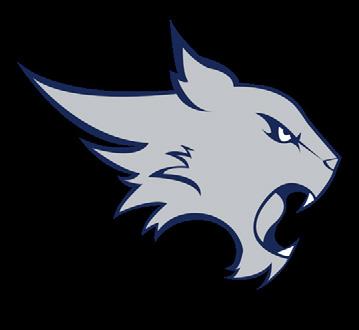
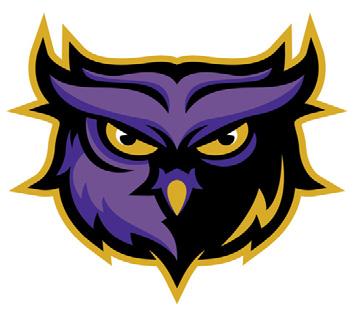



Step 1: Choose a "Career Pathway" to explore.
Step 2: Select a course at the appropriate level. (9th graders must begin at Level 1)

Step 3: Note the type of graduation endorsement(s) that could be earned by completing the pathway.
Step 1: Choose a "Career Pathway" to explore.
Business and Industry Endorsement Options
Step 2: Select a course at the appropriate level. (9th graders must begin at Level 1)
(Career Pathways designated with ^ will also earn a STEM Endorsement as long as the appropriate Math and Science requirements are met.)
Step 3: Note the type of graduation endorsement(s) that could be earned by completing the pathway.
Business and Industry Endorsement Options
Accounting & Financial Services
Business Information Management I (1)
(1)
Business Information Management I (1) OR Money Matters (1)
(1)
Accounting I (1) OR Financial Mathematics* (1) Entrepreneurship (1)
(.5) AND/OR Equine Science (.5)
Accounting II* (1) PracticumAccounting* (2)
(1) OR
Agricultural Technology and Mechanical Systems
Business Information Management I (1)
Principles of Agriculture, Food & Natural Resources (1)
(1)
Animal Science
Architectural Drafting and Design
Aviation Maintenance^
Audio/Video Production
Business Information Management I (1)
Mechanics & Metal Technologies (1) AND Optional Lab (1)
(1) AND Optional Lab (1)
Principles of Agriculture, Food & Natural Resources (1)
Small Animal Management (.5) AND/OR Equine Science (.5) Entrepreneurship (1)
Livestock Production (1) AND/OR Veterinary Medical Applications* (1)
Agriculture Technology & Mechanical Systems* (2)
Practicum - Animal Science* (2) OR Advanced Animal Science* (1) AND/OR
PracticumVeterinary* (2)
Digital Media (1) Principles of Arts, A/V Tech, & Communications (1)
Introduction to Computer-Aided Drafting (1) Principles of Architecture (1) Architectural Design I* (1) Architectural Design II* (2)
(1)
Digital Media (1)
Essentials (1)
Principles of Arts, A/V Tech, & Communications (1)
to Aircraft Technology (1)
Audio Video Production I (1) Entrepreneurship (1)
Maintenance (1)
Audio Video Production II* (1)
Aircraft Airframe Technology* (2)
-
PracticumArchitectural Drafting & Design* (2)
(2)
Practicum - Audio Video Production* (2) Aviation
Aviation Pilots^
Business Management
Engineering Essentials (1)
(1)
Essentials (1)
Business Information Management I (1)
Introduction to Aerospace and Aviation (1)
to Aerospace and Aviation (1)
Business Information Management I+ (1) OR Principles of Business, Marketing, & Finance (1) OR Business Information Management II* (1) if prereq. Is met
Introduction to Unmanned Aerial Vehicle Flight (1)
Introduction to Unmanned Aerial Vehicle Flight (1)
Business Information Management II* (1) OR Business Management (1) OR BUSI 1301(3) AND/OR BMGT 1327 (3)
Aviation Ground School (1) AND Aviation Scientific Research and Design* (1)
Aviation Ground School (1) AND Aviation Scientific Research and Design* (1) OR Aerospace Engineering (PLTW) (1)
Business Law (1) OR Business Management (1) OR BUSI 1301(3) AND/OR BMGT 1327 (3)
Practicum - Aviation Maintenance* (2)
Practicum - Pilots and Aviation Operation* (2)
Statistics & Business
Practicum - Aviation Pilots* (2)
Business Management
Construction Technology
Business Information Management I (1)
Business Information Management I (1) OR Principles of Business, Marketing, & Finance (1) OR Business Information Management II* (1) if prereq. Is met
Introduction to Computer-Aided Drafting (1) Principles of Architecture (1)
Business Information Management II* (1) OR Entrepreneurship
Construction Technology I (2) Entrepreneurship (1)
Business Management (1) OR BUSI 1301(3) AND/OR
Business Law (1) OR BUSI 2301(3)
Statistics & Business Decision Making* (1) OR PracticumBusiness Management* (2)
Construction Technology II* (2)
PracticumConstruction Technology* (2)
Step 1: Choose a "Career Pathway" to explore.
Step 2: Select a course at the appropriate level. (9th graders must begin at Level 1)

Step 3: Note the type of graduation endorsement(s) that could be earned by completing the pathway.
Step 1: Choose a "Career Pathway" to explore.
Business and Industry Endorsement Options
Step 2: Select a course at the appropriate level. (9th graders must begin at Level 1)
(Career Pathways designated with ^ will also earn a STEM Endorsement as long as the appropriate Math and Science requirements are met.)
Step 3: Note the type of graduation endorsement(s) that could be earned by completing the pathway.
Business and Industry Endorsement Options, Continued…
Accounting & Financial Services Business Information Management I (1) Business Information
Career Pathway
Junior High Jumpstart
Culinary Arts Principles of Hospitality and Tourism (1) Intro. to
I+ (1) OR Money Matters (1)
Animal Science ^ Business Information Management I (1) Principles of Agriculture, Food & Natural Resources (1)
(.5) AND/OR
(.5)
Agricultural Technology and Mechanical Systems^ Business Information Management I (1) Principles of Agriculture, Food & Natural Resources (1) Ag Mechanics & Metal Technologies+ (1) AND Optional Lab (1)
(1)
Digital Media (1)
Principles of Arts, A/V Tech, & Communications (1) Audio Video Production I+ (1) Audio Video Production II* (1) Practicum - Audio Video Production* (2)
Aviation Maintenance^ Engineering Essentials (1) Introduction to Aircraft Technology (1)
Aviation Pilots^
Business Management
Engineering Essentials (1)
Business Information Management I (1)
Introduction to Aerospace and Aviation (1)
Business Information Management I+ (1) OR Principles of Business, Marketing, & Finance (1) OR Business Information Management II* (1) if prereq. Is met
Aircraft Maintenance (1)
Introduction to Unmanned Aerial Vehicle Flight (1)
Business Information Management II* (1) OR Business Management (1) OR BUSI 1301(3) AND/OR BMGT 1327 (3)
Aircraft Airframe Technology* (2)
Aviation Ground School (1) AND Aviation Scientific Research and Design* (1)
Business Law (1) OR Business Management (1) OR BUSI 1301(3) AND/OR BMGT 1327 (3)
Practicum - Aviation Maintenance* (2)
Practicum - Pilots and Aviation Operation* (2)
Statistics & Business Decision Making* (1) OR PracticumBusiness Management* (2) OR Career Preparation (2)
Step 1: Choose a "Career Pathway" to explore.
Step 2: Select a course at the appropriate level. (9th graders must begin at Level 1)

Step 3: Note the type of graduation endorsement(s) that could be earned by completing the pathway.
Step 1: Choose a "Career Pathway" to explore.
Business and Industry Endorsement Options
Step 2: Select a course at the appropriate level. (9th graders must begin at Level 1)
(Career Pathways designated with ^ will also earn a STEM Endorsement as long as the appropriate Math and Science requirements are met.)
Step 3: Note the type of graduation endorsement(s) that could be earned by completing the pathway.
PUBLIC SERVICE Endorsement Options
Career Pathway
Junior High Jumpstart
(1)
Media (1)
(1)
(2) Aviation Maintenance^
Essentials (1)
Aviation Pilots^
Business Management
Maintenance (1) Aircraft Airframe Technology* (2)
Engineering Essentials (1) Introduction to Aerospace and Aviation (1) Introduction to Unmanned Aerial Vehicle Flight (1) Aviation Ground School (1) AND Aviation Scientific Research and Design* (1)
Business Information Management I (1)
Business Information Management I+ (1) OR Principles of Business, Marketing, & Finance (1) OR Business Information Management II* (1) if prereq. Is met
Business Information Management II* (1) OR Business Management (1) OR BUSI 1301(3) AND/OR BMGT 1327 (3)
Business Law (1) OR Business Management (1) OR BUSI 1301(3) AND/OR BMGT 1327 (3)
Practicum - Aviation Maintenance* (2)
Practicum - Pilots and Aviation Operation* (2)
Statistics & Business
Step 1: Choose a "Career Pathway" to explore.
Step 2: Select a course at the appropriate level. (9th graders must begin at Level 1)

Step 3: Note the type of graduation endorsement(s) that could be earned by completing the pathway.
Step 1: Choose a "Career Pathway" to explore.
Business and Industry Endorsement Options
Step 2: Select a course at the appropriate level. (9th graders must begin at Level 1)
Step 3: Note the type of graduation endorsement(s) that could be earned by completing the pathway.
(Career Pathways designated with ^ will also earn a STEM Endorsement as long as the appropriate Math and Science requirements are met.)
STEM Endorsement Options
(Non-STEM: Students who do not meet the STEM Math & Science Requirements of Algebra II, Chemistry, and Physics may earn the Business & Industry Endorsement in lieu of the STEM Endorsement)
Accounting & Financial Services
Career Pathway
Computer Science
Animal Science ^
Junior High Jumpstart
Business Information Management I (1)
Business Information Management I (1)
Business Information Management I (1)
(1)
Electrical Technology (Lone Star CollegeCreekside Center)
Agricultural Technology and Mechanical Systems^
Business Information Management I+ (1) OR Money Matters (1)
Computer Science I* (1)
Principles of Agriculture, Food & Natural Resources (1)
(1)
Business Information Management I (1)
Engineering Essentials (1) Principles of Applied Engineering (1)
(1)
Small Animal Management (.5) AND/OR Equine Science (.5)
AP Computer Science A (2 credits- Math and LOTE, 1 period) Entrepreneurship (1) Computer Science II* (1) Computer Science III* (1)
Principles of Agriculture, Food & Natural Resources (1)
of Energy (1)
Advanced Animal Science* (1) OR Livestock Production (1) OR Veterinary Medical Applications* (1)
Electronics (1) AND Electrical Technology I (1)
Engineering Foundations Engineering Essentials (1) Introduction to Engineering Design (1)
Game and App Development
Business Information Management I (1) Computer Science I (1)
Arts, A/V Tech, & Communications (1)
AP Computer Science A (2 credits- Math and LOTE, 1 period) Entrepreneurship (1)
Game Programming and Design* (1)
Aviation Maintenance^ Engineering Essentials (1)
Aviation Pilots^
Business Management
Engineering Essentials (1)
Business Information Management I (1)
Introduction to Aerospace and Aviation (1)
Business Information Management I+ (1) OR Principles of Business, Marketing, & Finance (1) OR Business Information Management II* (1) if prereq. Is met
Introduction to Unmanned Aerial Vehicle Flight (1)
Business Information Management II* (1) OR Business Management (1) OR BUSI 1301(3) AND/OR BMGT 1327 (3)
(1)
Technology II* (2)
(1)
Mobile App Development* (1)
Technology* (2)
Aviation Ground School (1) AND Aviation Scientific Research and Design* (1)
Business Law (1) OR Business Management (1) OR BUSI 1301(3) AND/OR BMGT 1327 (3)
(2)
Practicum - Aviation Maintenance* (2)
Practicum - Pilots and Aviation Operation* (2)
Statistics & Business Decision Making* (1) OR Practicum -
ENDORSEMENT CHOICES
Career and technical education programs offer a sequence of courses that provide students with coherent and rigorous content. CTE content is aligned with challenging academic standards and relevant technical knowledge and skills needed to prepare for further education and careers in current or emerging professions.


BUSINESS & INDUSTRY
Includes highly varied occupations in both service and manufacturing industries. These endorsements range from industrial and technical trades, business, marketing & finance, graphic design occupations, to information technology.
Programs of Study Include:
• Accounting & Financial Services (P. 8-9)
• Agricultural Technology & Mechanical Systems (P.10-11)
• Animal Science (P.12-13)
• Architectural Drafting & Design (P.14-15)
• Audio/Video Production (P.16-17)
• Aviation Maintenance (P.18-19)
• Aviation Pilots (P.20-21)
• Business Management (P.22-23)
• Construction Technology (P.26-27)
• Culinary Arts (P.28-29)
• Graphic Design (P.42-43)
• Marketing & Sales (P.48-49)
• Plant & Floral Science (P.54-55)
• Robotics (P.58-59)
• Welding (P.62-63)

PUBLIC SERVICES
Includes service-oriented occupations for both private and public sector industries, including human service and healthcare fields.
Programs of Study Include:
• Dentistry (P.32-33)
• Emergency Medicine (P.36-37)
• Law Enforcement (P.44-45)
• Legal Studies (P.46-47)
• Nursing (P.50-51)
• Pharmacy (P.52-53)
• P-TECH Healthcare (P.56-57)
• Teaching & Training (P.60-61)

STEM
Includes occupations in both professional and technical services, alongside laboratory, testing, research and development services.
Programs of Study Include:
• Computer Science (P.24-25)
• Cybersecurity (P.30-31)
• Electrical Technology (P.34-35)
• Engineering Foundations (P.38-39)
• Game & App Development (P.40-41)


Accounting and Financial Services
The Accounting and Financial Services program of study focuses on occupational and educational opportunities associated with examining, analyzing, and interpreting financial records. It includes exploration of financial services, preparing financial statements, auditing financial statements prepared by others, and interpreting accounting records. This program of study also introduces students to mathematical modeling tools.
Courses for High School Credit
Level
Level 2

•
•
•
•
• Entrepreneurship


Example Postsecondary Opportunities
Associate Degrees
• Accounting
Level 3
Level 4
• Accounting II
• Practicum in Accounting
Aligned Industry-Based Certifications
• Intuit QuickBooks Certified User
• Volunteer Income Tax Assistance/Tax Counseling Certification: Basic
Work-Based Learning and Expanded Learning Opportunities
• Intern with a certified public accountant (CPA) at a local business
Work-Based Learning Activities
Expanded Learning Opportunities
• Intern with a city or county auditor’s office
• Shadow a financial advisor as an intern at an investment company
• Participate in BPA, DECA, or FBLA
• Explore student membership in professional organizations such as AICPA, CIMA, or TXCPA



• Bookkeeping
Bachelor’s Degrees
• Accounting
• Banking and Financial Support Services
Master’s, Doctoral, and Professional Degrees
• Business Administration and Management
• Finance Additional Stackable IBCs/License
• Project Management Professional
• Property Tax Consultants Service Contract Providers

Example Aligned Occupations (Based on statewide employment data) Tax Preparers
Median Wage: $56,956
Annual Openings: 898 10-Year Growth: 14%
Accountants and Auditors
Median Wage: $78,022
Annual Openings: 12,989 10-Year Growth: 20%
Personal Financial Advisors
Median Wage: $77,605
Annual Openings: 1,877 10-Year Growth: 21%

For more information visit:
Accounting and Financial Services Course Descriptions:
Business Information Management I- CMP1120 (1 Credit)
Level: 1
Prerequisites: None

Course Fee: None
GPA Weight: Regular
In Business Information Management I, students implement personal and interpersonal skills to strengthen individual performance in the workplace and in society and make a successful transition to the workforce and postsecondary education. Students apply technical skills to address business applications of emerging technologies, create word-processing documents, develop a spreadsheet, formulate a database, and make an electronic presentation using appropriate software.
Money Matters- BUS1200 (1 Credit)
Level: 1
Prerequisite: None
Course Fee: None
GPA Weight: Regular
In Money Matters, students will investigate money management from a personal financial perceptive. Students will apply critical-thinking skills to analyze financial options based on current and projected economic factors. Students will gain knowledge and skills necessary to establish short-term and long-term financial goals. Students will examine various methods of achieving short-term and long-term financial goals through various methods such as investing, tax planning, asset allocating, risk management, retirement planning, and estate planning.
Accounting I- BUS1520 (1 Credit)
Level: 2
Prerequisite: None
Course Fee: None
GPA Weight: Regular
In Accounting I, students will investigate the field of accounting, including how it is impacted by industry standards as well as economic, financial, technological, international, social, legal, and ethical factors. Students will reflect on this knowledge as they engage in the process of recording, classifying, summarizing, analyzing, and communicating accounting information. Students will formulate and interpret financial information for use in management decision making. Accounting includes such activities as bookkeeping, systems design, analysis, and interpretation of accounting information.
Financial Mathematics- MTH5300 (1 Credit)
Level: 2
Prerequisite: Algebra I
Course Fee: None
GPA Weight: Regular
Financial Mathematics is a course about personal money management. Students will apply critical thinking skills to analyze personal financial decisions based on current and projected economic factors. Note: This course satisfies a math credit requirement for students on the Foundation High School Program.

Successful completion of the Accounting and Financial Services program of study will fulfill requirements of the Business and Industry endorsement.

Entrepreneurship- BUS1220 (1 Credit)
Level: 2
Prerequisite: None
Course Fee: None
GPA Weight: Regular
Students will learn the principles necessary to begin and operate a business. The primary focus of the course is to help students understand the process of analyzing a business opportunity, preparing a business plan, determining feasibility of an idea using research, and developing a plan to organize and promote the business and its products and services.
Accounting II- BUS1620 (1 Credit)
Level: 3
Prerequisite: Accounting I
Course Fee: None
GPA Weight: Regular
In Accounting II, students will continue the investigation of the field of accounting, including how it is impacted by industry standards as well as economic, financial, technological, international, social, legal, and ethical factors. Students will reflect on this knowledge as they engage in various managerial, financial, and operational accounting activities. Students will formulate, interpret, and communicate financial information for use in management decision making. Students will use equations, graphical representations, accounting tools, spreadsheet software, and accounting systems in real-world situations to maintain, monitor, control, and plan the use of financial resources. Note: This course satisfies a math credit requirement for students on the Foundation High School Program.
Practicum in Accounting- BUS4000 (2 Credits)
Level: 4
Prerequisite: 2 credits in the Program of Study
Course Fee: None
GPA Weight: Regular
Practicum in Accounting is designed to give students supervised practical application of previously studied knowledge and skills. Practicum experiences occur in a paid or unpaid arrangement and a variety of locations appropriate to the nature and level of experience. Students implement personal and interpersonal skills to strengthen individual performance in the workplace and in society and to make a successful transition to the workforce or postsecondary education. Students apply technical skills to address business applications of emerging technologies. Students develop a foundation in the economic, financial, technological, international, social, and ethical aspects of business to become competent consumers, employees, and entrepreneurs.

For more information visit: https://tea.texas.gov/academics/college-career-and-militaryprep/career-and-technical-education/programs-of-study-additionalresources
Agricultural Technology and Mechanical Systems

Level 1
Level 2
Level 3
Level 4
The Agricultural Technology and Mechanical Systems program of study focuses on occupational and educational opportunities associated with applying engineering technology and biological science to agricultural problems related to power and machinery, electrification, structures, soil and water use, and processing agricultural products. This program of study includes diagnosing, repairing, or overhauling farm machinery and vehicles, such as tractors, harvesters, dairy equipment, and irrigation systems.
Courses for High School Credit
• Principles of Agriculture, Food, and Natural Resources
• Agricultural Mechanics and Metal Technologies
• Agricultural Mechanics and Metal Technologies with Lab
• Agricultural Structures, Design, and Fabrication
• Agricultural Structures, Design, and Fabrication with Lab
• Agricultural Equipment, Design, and Fabrication
• Practicum in Agriculture Technology & Mechanical Systems
Aligned Industry-Based Certifications
• AWS D1.1 Structural Steel
• AWS D9.1 Sheet Metal Welding
Work-Based Learning and Expanded Learning Opportunities
Work-Based Learning Activities
Expanded Learning Opportunities
• Participate in a farm mechanic apprenticeship at an equipment production company
• Intern at an equipment manufacturing facility working with agricultural engineers
• Participate in an FFA career, leadership, and speaking contest like an agriscience fair
• Participate in an agriculture robotics event
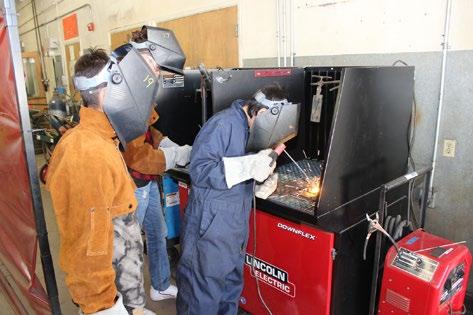


Example Postsecondary Opportunities Apprenticeships
• Farm Equipment Mechanic I Associate Degrees
• Diesel Mechanics Technology
• Industrial Mechanics and Maintenance Technology
Bachelor’s Degrees
• Agricultural Engineering

• Agricultural Systems Management Master’s, Doctoral, and Professional Degrees
• Agricultural Engineering
• Industrial Technology Additional Stackable IBCs/License
• Diesel Equipment Technology-Off Highway Specialization CER1
• Accredited Farm Manager
Example Aligned Occupations (Based on statewide employment data)
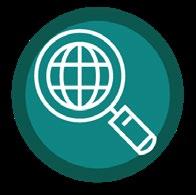
Farm Equipment Mechanics and Service Technicians
Median Wage: $46,582
Annual Openings: 326 10-Year Growth: 23%
Mobile Heavy Equipment Mechanics
Median Wage: $57,943
Annual Openings: 2,637
10-Year Growth: 31%
Farmers, Ranchers, and Agricultural Managers
Median Wage: $65,490
Annual Openings: 28,020
10-Year Growth: 4%
For more information visit: https://tea.texas.gov/academics/college-career-and-militaryprep/career-and-technical-education/programs-of-studyadditional-resources


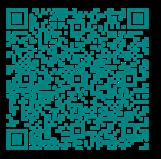
Agricultural Technology and Mechanical Systems Course Descriptions:
Principles of Agriculture, Food, and Nat Resources- AGR0000 (1 Credit)
Level: 1
Prerequisites: None
Course Fee: None
GPA Weight: Regular
Principles of Agriculture, Food, and Natural Resources will allow students to develop knowledge and skills regarding career and educational opportunities, personal development, globalization, industry standards, details, practices, and expectations.
Ag. Mech. and Metal Tech. (+ Opt. Lab) - AGR0320, AGR0330 (1 or 2 Credits)
Level: 2
Prerequisites: None
Course Fee: $50
GPA Weight: Regular
Agricultural Mechanics and Metal Technologies is designed to develop an understanding of agricultural mechanics as it relates to safety and skills in tool operation, electrical wiring, plumbing, carpentry, fencing, concrete, and metal working techniques. To prepare for careers in agricultural power, structural, and technical systems, students must attain academic skills and knowledge; acquire technical knowledge and skills related to power, structural, and technical agricultural systems and the industry; and develop knowledge and skills regarding career opportunities, entry requirements, industry certifications, and industry expectations.
Ag. Structures, Design and Fab. (+ Opt. Lab) - AGR0920, AGR0930 (1 or 2 Credits)
Level: 3
Prerequisite: Agricultural Mechanics and Metal Technologies
Course Fee: $50
GPA Weight: Regular
In Agricultural Structures Design and Fabrication, students will explore career opportunities, entry requirements, and industry expectations. To prepare for careers in mechanized agriculture and technical systems, students must attain knowledge and skills related to agricultural structures design and fabrication.


Successful completion of the Agricultural Technology and Mechanical Systems program of study will fulfill requirements of the Business and Industry endorsement.

Agricultural Equipment, Design & Fabrication- AGR4450 (1 credit)
Level: 4
Prerequisite: Agricultural Mechanics and Metal Technologies
Course Fee: $50
GPA Weight: Regular
In Agricultural Equipment Design and Fabrication, students will acquire knowledge and skills related to the design and fabrication of agricultural equipment.

Practicum in Ag. Tech & Mechanical Systems- AGR4200 (2 credits)
Level: 4
Prerequisites: 2 credits in the Program of Study
Course Fee: $50
GPA Weight: Regular
This practicum course includes a paid or unpaid capstone experience for students participating in a coherent sequence of career and technical education courses in the Agriculture, Food, and Natural Resources Career Cluster.
For more information visit: https://tea.texas.gov/academics/college-career-and-militaryprep/career-and-technical-education/programs-of-studyadditional-resources





Animal Science
The Animal Science program of study focuses on occupational and educational opportunities associated with the science, research, and business of animals and other living organisms. This program of study includes applying biology and life science to real-world life processes of animals and wildlife, either in laboratories or in the field, which could include a veterinary office, a farm or ranch, or any outdoor area harboring animal life. Students will research and analyze the growth and destruction of species and research or diagnose diseases and injuries of animals.
Courses for High School Credit
Level 1
Level 2
Level 3
Level 4
• Principles of Agriculture, Food, and Natural Resources
• Small Animal Management
• Equine Science
• Entrepreneurship
• Livestock Production
• Veterinary Medical Applications
• Advanced Animal Science
• Practicum in Animal Science
• Practicum in Veterinary
Aligned Industry-Based Certifications
• Certified Veterinary Assistant, Level I
• Elanco Fundamentals of Animal Science Certification
• Elanco Veterinary Medical Applications Certification
Work-Based Learning and Expanded Learning Opportunities
Work-Based Learning Activities
Expanded Learning Opportunities
• Shadow an animal scientist in a biology lab to learn about applying science to understand animals and wildlife
• Intern in a veterinary clinic, caring for animals and wildlife being treated in the clinic
• Participate in an FFA career, leadership, and speaking contest like an agriscience fair
• Attend an agricultural industry seminar


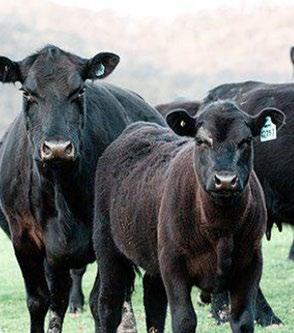

Example Postsecondary Opportunities
Apprenticeships
• Reproduction Technician
Associate Degrees
• Biological and Physical Sciences
• Entomology
Bachelor’s Degrees
• Animal Science
• Zoology/Animal Biology

Master’s, Doctoral, and Professional Degrees
• Marine Sciences
• Biotechnology
Additional Stackable IBCs/License
• Veterinarian
• Certified Veterinary Technician
Example Aligned Occupations (Based on statewide employment data)

Veterinary Assistants and Laboratory Animal Caretakers
Median Wage: $29,906
Annual Openings: 1,348 10-Year Growth: 24%
Veterinary Technologists and Technicians
Median Wage: $33,679
Annual Openings: 1,217
10-Year Growth: 24%
Veterinarian
Median Wage: $103,160
Annual Openings: 347
10-Year Growth: 26%

For more information visit: https://tea.texas.gov/academics/college-career-and-militaryprep/career-and-technical-education/programs-of-study-additionalresources
Animal Science Course Descriptions:
Principles of Agriculture, Food, and Nat Resources- AGR0000 (1 Credit)
Level: 1
Prerequisites: None

Course Fee: None
GPA Weight: Regular
Principles of Agriculture, Food, and Natural Resources will allow students to develop knowledge and skills regarding career and educational opportunities, personal development, globalization, industry standards, details, practices, and expectations.
Small Animal Management- AGR1257 (.5 credit)
Level: 2
Prerequisites: None
Course Fee: None
GPA Weight: Regular
In Small Animal Management, students will acquire knowledge and skills related to small animals and the small animal management industry. Small Animal Management may address topics related to small mammals such as dogs and cats, amphibians, reptiles, and birds.
Equine Science- AGR1227 (.5 credit)
Level: 2
Prerequisites: None
Course Fee: None
GPA Weight: Regular
In Equine Science, students will acquire knowledge and skills related to equine animal systems and the equine industry. Equine Science may address topics related to horses, donkeys, and mules.
Entrepreneurship- BUS1220 (1 credit)
Level: 2
Prerequisites: None
Course Fee: None
GPA Weight: Regular
Students will learn the principles necessary to begin and operate a business. The primary focus of the course is to help students understand the process of analyzing a business opportunity, preparing a business plan, determining feasibility of an idea using research, and developing a plan to organize and promote the business and its products and services.
Livestock Production- AGR3240 (1 credit)
Level: 3
Prerequisites: None
Course Fee: $10
GPA Weight: Regular
In Livestock Production, students will acquire knowledge and skills related to livestock and the livestock production industry. Livestock Production may address topics related to beef cattle, dairy cattle, swine, sheep, goats, and poultry.

Successful completion of the Animal Science program of study will fulfill requirements of a Business and Industry endorsement.
Veterinary Medical Applications- AGR3120 (1 credit)
Level: 3
Course Fee: $45 (Uniform Fee)
Prerequisites: Small Ani. Mgmt., Equine Science, or Livestock Prod. GPA Weight: Regular
Veterinary Medical Applications covers topics relating to veterinary practices, including practices for large and small animal species.
Advanced Animal Science- AGR1220 (1 credit)
Level: 4
Prerequisites: Bio. & Chem./IPC, Alg. I & Geom., Veterinary Medical Applications
Course Fee: None
GPA Weight: Regular
Advanced Animal Science examines the interrelatedness of human, scientific, and technological dimensions of livestock production. Instruction is designed to allow for the application of scientific and technological aspects of animal science through field and laboratory experiences.
Note: This course satisfies a science credit requirement for students on the Foundation High School Program.
Available for Dual Credit from Tarleton State University (AGR1220D)
Practicum - Animal Science- AGR4600 (2 credits)
Level: 4
Course Fee: None
Prerequisites: 2 credits in the Program of Study GPA Weight: Regular
This practicum course includes a paid or unpaid capstone experience for students participating in a coherent sequence of career and technical education courses in the Agriculture, Food, and Natural Resources Career Cluster.
Practicum - Veterinary Science- AGR3130 (2 credits)
Level: 4
Course Fee: None
Prerequisites: 2 credits in the Program of Study GPA Weight: Regular
This practicum course includes a paid or unpaid capstone experience for students participating in a coherent sequence of career and technical education courses in the Agriculture, Food, and Natural Resources Career Cluster.
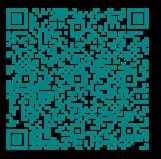
For more information visit: https://tea.texas.gov/academics/college-career-and-militaryprep/career-and-technical-education/programs-of-study-additionalresources
Architectural Drafting and Design
The Architectural Drafting and Design program of study focuses on occupational and educational opportunities associated with developing, engineering, and designing building structures and facilities. This program of study includes reading, interpreting, and drawing blueprints for interior and exterior construction projects.

Courses for High School Credit
Level 1
Level 2
Level 3
Level 4

• Principles of Architecture
• Architectural Design I
• Architectural Design II
• Practicum in Architectural Drafting & Design
Aligned Industry-Based Certifications
• Autodesk Certified Professional in AutoCAD for Design and Drafting
• Autodesk Certified Professional in Revit for Architectural Design
Work-Based Learning and
Expanded Learning Opportunities
Work-Based Learning Activities
Expanded Learning
Opportunities
• Intern at an architectural firm to develop CADD drafting and design technology skills
• Shadow a civil engineer to learn more about their day-to- day responsibilities
• Conduct an informational interview with an architect to learn about their role and responsibilities
• Participate in SkillsUSA or TSA


Example Postsecondary Opportunities
Apprenticeships
• Drafter Associate Degrees

• CAD/CADD Drafting and/or Design Technology
• Drafting and Design Technology
• Surveying Technology/Surveying
• Architectural Drafting and Architectural CAD/CADD
Bachelor’s Degrees
• Civil Engineering
• Construction Engineering
• Surveying Engineering
• Drafting and Design Technology
Master’s, Doctoral, and Professional Degrees
• Civil Engineering
• Geographic Information Science and Cartography
• Construction Engineering Technology
Example Aligned Occupations
(Based on statewide employment data)

Architectural and Civil Drafters
Median Wage: $57,424
Annual Openings: 1,366
10-Year Growth: 15%
Architects
Median Wage: $80,903
Annual Openings: 966
10-Year Growth: 18%
Construction Managers
Median Wage: $95,072
Annual Openings: 6,325
10-Year Growth: 24%

For more information visit: https://tea.texas.gov/academics/college-careerand-military-prep/career-and-technicaleducation/programs-of-study-additional-resources
Architectural Drafting and Design Course
Descriptions:

Principles of Architecture- ACS0120 (1 Credit)
Level: 1
Prerequisites: None
Course Fee: None
GPA Weight: Regular
Principles of Architecture provides an overview to the various fields of architecture, interior design, and construction management. Achieving proficiency in decision making and problem solving is an essential skill for career planning and lifelong learning. Students use self-knowledge, education, and career information to set and achieve realistic career and educational goals. Job Specific training can be provided through training modules that identify career goals in trade and industry areas. Classroom studies include topics such as safety, work ethics, communication, information technology applications, systems, health, environment, leadership, teamwork, ethical and legal responsibility, employability, and career development and include skills such as problem solving, critical thinking, and reading technical drawings.

Architectural Design I- ACS1020 (1 credit)
Level: 2
Prerequisites: Algebra I and English I
Course Fee: None
GPA Weight: Regular
In Architectural Design I, students will gain knowledge and skills needed to enter a career in architecture or construction or prepare a foundation toward a post-secondary degree in architecture, construction science, drafting, interior design, or landscape architecture. Architectural Design I includes the knowledge of the design, design history, techniques, and tools related to the production of drawings, renderings, and scaled models for nonresidential or residential architectural purposes.
Architectural Design II- ACS1120 (2 credits)
Level: 3
Prerequisites: Arch. Design I and Geometry

Course Fee: None
GPA Weight: Regular
In Architectural Design II, students will gain advanced knowledge and skills needed to enter a career in architecture or construction or prepare a foundation toward a postsecondary degree in architecture, construction science, drafting, interior design, or landscape architecture. Architectural Design II includes the advanced knowledge of the design, design history, techniques, and tools related to the production of drawings, renderings, and scaled models for nonresidential or residential architectural purposes.

Practicum in Architectural Drafting & Design- ACS4000 (2 credits)
Level: 4
Prerequisites: Architectural Design II
Course Fee: None
GPA Weight: Regular
Practicum in Architectural Design is an occupationally specific course designed to provide technical instruction in architectural design. Safety and career opportunities are included in addition to work ethics and architectural design study


For more information visit: https://tea.texas.gov/academics/college-careerand-military-prep/career-and-technicaleducation/programs-of-study-additional-resources
Audio/Video Production
The Audio/Video Production program of study focuses on occupational and educational opportunities associated with the production of audio and visual media formats for various purposes, such as TV broadcasts, advertising, video production, or motion pictures. The program of study includes operating machines and equipment such as microphones, sound speakers, video screens, projectors, video monitors, sound and mixing boards, and related electronic equipment to record sound and images.
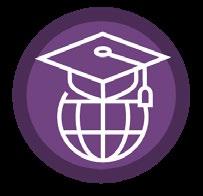
Courses for High School Credit
Level 1
Level 2
Level 3
Level 4

• Principles of Arts, Audio/Video Technology, and Communications
• Audio/Video Production I
• Entrepreneurship
• Audio/Video Production II
• Practicum in Audio/Video Production
Aligned Industry-Based Certifications
• Adobe Certified Professional in Digital Video Using Adobe Premiere Pro
Work-Based Learning and
Expanded Learning Opportunities
• Shadow a sound designer to learn how sound and foley are created for movies or podcasts
Work-Based Learning Activities
Expanded Learning Opportunities


• Intern with a technical director at a sports team, recording studio, or radio station
• Shadow a technician on a live news broadcast, concert, or other event
• Participate in SkillsUSA or TSA
• Participate in Student Television Network
• Capture and edit film and audio for a podcast with a local community organization


Example Postsecondary Opportunities
Apprenticeships
• Light Technician Associate Degrees
• Commercial and Advertising Art

• Animation, Interactive Technology, Video Graphics, and Special Effects Bachelor’s Degrees
• Cinematography and Film/Video Production
• Recording Arts Technology
Master’s, Doctoral, and Professional Degrees
• Animation, Interactive Technology, Video Graphics, and Special Effects
• Communications Technology Additional Stackable IBCs/License
• CompTIA Digital Media and Entertainment Professional Certification (DMEP)
Example Aligned Occupations
(Based on statewide employment data)

Camera Operators, Television, Video, and Film
Median Wage: $48,422
Annual Openings: 155
10-Year Growth: 20%
Audio and Video Technicians
Median Wage: $46,319
Annual Openings: 626
10-Year Growth: 30%
Producers and Directors
Median Wage: $65,029
Annual Openings: 522
10-Year Growth: 12%
Successful completion of the Audio/Video Production program of study will fulfill requirements of the Business and Industry endorsement.
Audio/Video Production Course Descriptions
Prin of Arts,Audio/Video Tech,and Comm-APV1000 (1 credit)
Level: 1
Prerequisites: None

Course Fee: None
GPA Weight: Regular
The goal of this course is that the student understands arts, audio/video technology, and communications systems. Within this context, students will be expected to develop an understanding of the various and multifaceted career opportunities in this cluster and the knowledge, skills, and educational requirements for those opportunities.
Audio/Video Production I-APV2000 (1 credit)
Level: 2
Prerequisites: None
Course Fee: None
GPA Weight: Regular
In addition to developing technical knowledge and skills needed for success in the Arts, Audio/Video Technology, and Communications Career Cluster, students will be expected to develop an understanding of the industry with a focus on pre-production, production, and post-production audio and video products.
Entrepreneurship-BUS1220 (1 credit)
Level: 2
Prerequisites: None
Course Fee: None
GPA Weight: Regular
Students will learn the principles necessary to begin and operate a business. The primary focus of the course is to help students understand the process of analyzing a business opportunity, preparing a business plan, determining feasibility of an idea using research, and developing a plan to organize and promote the business and its products and services.
Audio/Video Production II-APV3000 (1 credit)
Level: 3
Course Fee: None
Prerequisites: A/V Production I GPA Weight: Regular
Building upon the concepts taught in Audio/Video Production, in addition to developing advanced knowledge and skills needed for success in the Arts, Audio/Video Technology, and Communications Career Cluster, students will be expected to develop an advanced understanding of the industry with a focus on pre-production, production, and post- production products. This course may be implemented in an audio format or a format with both audio and video.

Practicum in Audio/Video Production-APV4000 (2 credits)
Level: 4
Course Fee: None
Prerequisites: A/V Production II GPA Weight: Regular
Building upon the concepts taught in Audio/Video Production II and its corequisite Audio/Video Production II Lab, in addition to developing advanced technical knowledge and skills needed for success in the Arts, Audio/Video Technology, and Communications Career Cluster, students will be expected to develop an increasing understanding of the industry with a focus on applying preproduction, production, and post-production audio and video products in a professional environment. This course may be implemented in an advanced audio/video or audio format. Instruction may be delivered through lab-based classroom experiences or career preparation opportunities.
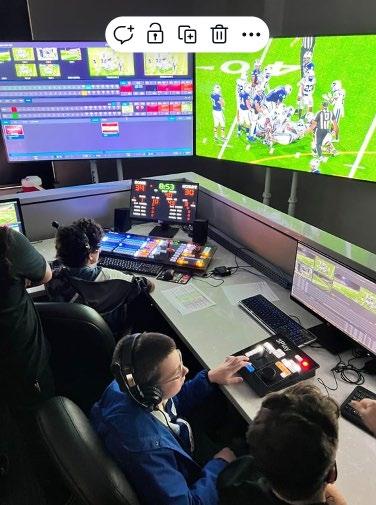

Successful completion of the Audio/Video Production program of study will fulfill requirements of the Business and Industry endorsement. For

Aviation Maintenance
The Aviation Maintenance program of study focuses on occupational and educational opportunities associated with maintenance and repair of airframe structures, systems, and components of an aircraft. This program of study includes exploration of aircraft maintenance procedures, air navigational aids, air traffic controls, and communication equipment to ensure compliance with federal safety regulations.
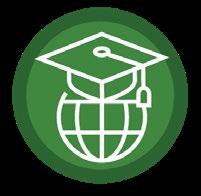
Courses for High School Credit
Level 1
Level 2
Level 3
Level 4
• Introduction to Aircraft Technology
• Aircraft Maintenance Technology
• Aircraft Airframe Technology
• Practicum in Aviation Maintenance
Aligned Industry-Based Certifications
• Aerospace Manufacturing Certification
Work-Based Learning and
Expanded Learning Opportunities
Work-Based Learning Activities
Expanded Learning Opportunities
• Shadow an aviation maintenance technician at an airport to learn about aircraft inspection and maintenance
• Participate in an aircraft maintenance apprenticeship at an airline or a defense technology company
• Participate in TechForce
• Participate in SkillsUSA
• Explore associations such as Aircraft Mechanics Association and Women in Aviation




Example Postsecondary Opportunities
Apprenticeships
• Aircraft Mechanic Apprentice Associate Degrees
• Avionics Maintenance Technology

• Aeronautics/Aviation/Aerospace Science and Technology Bachelor’s Degrees
• Aircraft Powerplant Technology
• Airframe Mechanics and Aircraft Maintenance Technology Master’s, Doctoral, and Professional Degrees
• Aerospace, Aeronautical, and Astronautical/Space Engineering
• Industrial Technology Additional Stackable IBCs/License
• Certificated Aviation Maintenance Technician
Example
Aligned Occupations
(Based on statewide employment data)



Aerospace Engineering and Operations Technicians
Median Wage: $48,204
Annual Openings: 192
10-Year Growth: 21%
Aircraft Mechanics and Service Technicians
Median Wage: $67,683
Annual Openings: 1,636
10-Year Growth: 16%
Avionics Technicians
Median Wage: $72,461
Annual Openings: 255
10-Year Growth: 16%
Aviation Maintenance Course Descriptions:
Introduction to Aircraft Technology- AVI2000 (1 Credit)
Level: 1
Prerequisites: None

Course Fee: None
GPA Weight: Regular
Introduction to Aircraft Technology is designed to teach the theory of operation of aircraft airframes, power plants, and associated maintenance and repair practices. Maintenance and repair practices include knowledge of the function, diagnosis, and service, airframe structures, airframe systems and components, power plant theory and maintenance, and powerplant systems and components of aircraft. Industry recognized professional licensures, certifications, and registrations are available for students who meet the requirements set forth by the accrediting organization.

Aircraft Maintenance Technology- AVI2200 (1 credit)
Level: 2
Prerequisite: Intro. to Aircraft Technology
Course Fee: None
GPA Weight: Regular
Students will practice safe working habits and learn the components of a reciprocating engine; aircraft control systems, and avionics systems. The course will include aircraft service requirements, ground operation procedures, and calculating the cost associated with aircraft preventative maintenance.
Aircraft Airframe Technology - AVI3200 (2 credits)
Level: 3
Prerequisite: Intro. to Aircraft Technology
Course Fee: None
GPA Weight: Regular
Aircraft Airframe Technology is designed to teach the theory of operation of aircraft airframes and associated maintenance and repair practices. Airframe maintenance and repair practices include knowledge of the function, diagnosis, and service of airframe structures, systems, and components of aircraft. Course taught exclusively at the Tomball Innovation Center.

Successful completion of the Aviation Maintenance program of study will fulfill requirements of the Business and Industry endorsement.

Practicum in Aviation Maintenance- AVI4000 (2 credits)
Level: 4
Prerequisites: 2 credits in the Program of Study
Course Fee: None
GPA Weight: Regular
Practicum in Aviation Maintenance is designed to give students supervised practical application of knowledge and skills. Practicum experiences can occur in a variety of locations appropriate to the nature and level of experience such as internships, mentorships, independent study, or laboratories. The Practicum can be either school lab-based or work-based.
Course taught exclusively at the Tomball Innovation Center.


For more information visit: https://tea.texas.gov/academics/college-career-and-militaryprep/career-and-technical-education/programs-of-studyadditional-resources
Aviation Pilots
The Aviation Pilots program of study focuses on occupational and educational opportunities associated with the principles and science of flight. This program of study includes the exploration and understanding of aviation engineering, air navigational aids, air traffic controls, and communications equipment to ensure conformance with federal safety regulations.

Courses for High School Credit
Level 1
Level 2
Level 3
Level 4
• Introduction to Aerospace and Aviation
• Introduction to Unmanned Aerial Vehicle Flight
• Aerospace Engineering (PLTW)
• Aviation Ground School
• Aviation Scientific Research and Design
• Practicum in Aviation Pilots
Aligned Industry-Based Certifications
• FAA Part 107 Remote Drone Pilot
Work-Based Learning
and Expanded Learning Opportunities
Work-Based Learning Activities
Expanded Learning Opportunities
• Shadow a commercial airline pilot for to learn about pre- and post-flight routines
• Intern at a technology company that produces drones to learn about aerial robotics and drone pilot requirements
• Explore virtual aviation websites
• Participate in SkillsUSA




Example Postsecondary Opportunities
Apprenticeships
• Air Transport Pilot Apprentice
Associate Degrees

• Airline/Commercial/Professional Pilot and Flight Crew
Bachelor’s Degrees
• Airline/Commercial/Professional Pilot and Flight Crew
Additional Stackable IBCs/License
• Airman Certificate
Example Aligned Occupations

(Based on statewide employment data)
Commercial Pilots
Median Wage: $108,120
Annual Openings: 663
10-Year Growth: 20%
Airline Pilots, Copilots, and Flight Engineers
Median Wage: $180,060
Annual Openings: 1,204
10-Year Growth: 14%

Aviation Pilots Course Descriptions:
Introduction to Aerospace and Aviation- AVI1000 (1 Credit)
Level: 1
Prerequisites: None

Course Fee: None
GPA Weight: Regular
The Introduction to Aerospace and Aviation course will provide the foundation for advanced exploration in the areas of professional pilot, aerospace engineering, and unmanned aircraft systems. Students will learn about the history of aviation, from Leonardo da Vinci’s ideas about flight to the Wright brothers and the space race. Along the way students will learn about the innovations and technological developments that have made today’s aviation and aerospace industries possible. The course includes engineering practices, the design process, aircraft structure, space vehicles past and present, and a look toward future space exploration. Students will also learn about the wide variety of exciting and rewarding careers available to them. The Introduction to Aerospace and Aviation course will inspire students to consider aviation and other aerospace careers while laying the foundation for continued study in grades 10-12.
Introduction to Unmanned Aerial Vehicle Flight- AVI2300 (1 credit)
Level: 2
Prerequisites: None
Course Fee: None
GPA Weight: Regular
The Introduction to Unmanned Aerial Vehicle (UAV) Flight course is designed to prepare students for entry-level employment or continuing education in piloting UAV operations. Principles of UAV is designed to instruct students in UAV flight navigation, industry laws and regulations, and safety regulations. Students are also exposed to mission planning procedures, environmental factors, and human factors involved in the UAV industry.
Aviation Ground School- AVI5001 (1 credit)
Level: 3
Prerequisites: None
Course Fee: None
GPA Weight: Regular
This course is designed to extend student interests in all aspects of aviation while preparing students to take the formal ground requisite exam for the Federal Aviation Administration (FAA) FAA Airman Knowledge Test which is required to obtain a private pilot’s license. The rigor of the course challenges students with complex aeronautical, engineering, weather, management and judgement concepts. Rules, regulations, obligations, and commitments to discipline and focus are foundational throughout the course. The ability to grasp flight without actually flying a real aircraft extends well beyond the classroom as students learn navigation, weather science, attention to detail (mathematical fuel and load planning), health and mental well-being related to flight planning and piloting aircraft.
This course is designed to extend student interests in all aspects of aviation while preparing students to take the formal ground requisite exam for the Federal Aviation Administration (FAA)Airman Knowledge Test which is required in order to obtain a private pilot license.
Course taught exclusively at the Tomball Innovation Center.

Successful completion of the Aviation Pilots program of study will fulfill requirements of the Business and Industry endorsement.
Aviation Scientific Research & Design- AVI5002 (1 credit)
Level: 3
Course Fee: None
Prerequisite: 1 Science credit GPA Weight: Regular
Aviation Scientific Research and Design is a broad-based course designed to allow districts and schools considerable flexibility to develop local curriculum to supplement any program of study or coherent sequence. The course has the components of any rigorous scientific or engineering program of study from the problem identification, investigation design, data collection, data analysis, formulation, and presentation of the conclusions. These components are integrated with the career and technical education emphasis of helping students gain entry-level employment in high-skill, high-wage jobs and/or continue their education. Students must meet the 40% laboratory and fieldwork requirement. Students may take this course with different course content for a maximum of three credits.
Note: This course satisfies a science credit requirement for students on the Foundation High School Program.
Course taught exclusively at the Tomball Innovation Center.
Aerospace Engineering - STE3100H (1 credit)
Level: 3
Course Fee: None
Prerequisites: None GPA Weight: Advanced
In this course, students explore the fundamentals of flight in air and space as they bring the concepts to life by designing and testing components, such as an airfoil, propulsion system, and a rocket. They learn orbital mechanics concepts and apply these by creating models using industry standard software. Students simulate a progression of operations to explore a planet, including creating a map of the terrain and using the map to execute a mission using an autonomous robot. Building enthusiasm while learning real-world skills related to the aerospace industry is a primary goal of the course. This course prepares students for college, a career, or the military by deepening their knowledge of aerospace concepts, developing students problemsolving skills, transportable skills (such as communication and ethical reasoning), and exposing them to a variety of careers.
Practicum in Aviation Pilots- AVI4000 (2 Credits)
Level: 4
Course Fee: None
Prerequisites: Aviation Ground School GPA Weight: Regular
Practicum in Aviation Pilots is designed to give students practical application of knowledge and skills. Practicum experiences can occur in a variety of locations appropriate to the nature and level of experience such as internships, mentorships, independent study, or laboratories. The Practicum can be either school lab-based or workbased.
Course taught exclusively at the Tomball Innovation Center.

For more information visit: https://tea.texas.gov/academics/college-career-and-militaryprep/career-and-technical-education/programs-of-studyadditional-resources

Business Management
The Business Management program of study focuses on occupational and educational opportunities associated with planning, directing, and coordinating the administrative services and operations of an organization. It includes formulating policies, managing daily operations, and allocating the use of materials and human resources. This program of study also introduces students to mathematical modeling tools and organizational evaluation methods.
Courses for High School Credit
Level 1
• Principles of Business, Marketing, and Finance
• Business Information Management I
• Business Information Management II
Level 2
Level 3
Level 4
• Business Information Management II
• Entrepreneurship
• Business Management
• BUSI 1301- Dual Credit Business Management
• Business Law
• BUSI 2301- Dual Credit Business Law
• Statistics and Business Decision Making
• Practicum in Business Management
Aligned Industry-Based Certifications
• Entrepreneurship and Small Business
• Microsoft Office Specialist: Excel Expert (Excel 2019)
• Microsoft Office Specialist: Word Expert (Word 2019)
Work-Based Learning and Expanded Learning Opportunities
Work-Based Learning Activities
• Intern at local business in the HR department
• Shadow the COO of a local business or chamber of commerce Expanded Learning Opportunities
• Participate in BPA,DECA, FBLA, or related UIL events
• Explore student membership in related professional organizations





Example Postsecondary Opportunities
Associate Degrees
• Business Administration and Management
• Human Resources Management
Bachelor’s Degrees
• Business Analytics
• Accounting and Business
Master’s, Doctoral, and Professional Degrees
• Business Administration and Management
• Organizational Leadership
Additional Stackable IBCs/License
• Professional Certificate in Team Leadership
• Property Tax Professionals

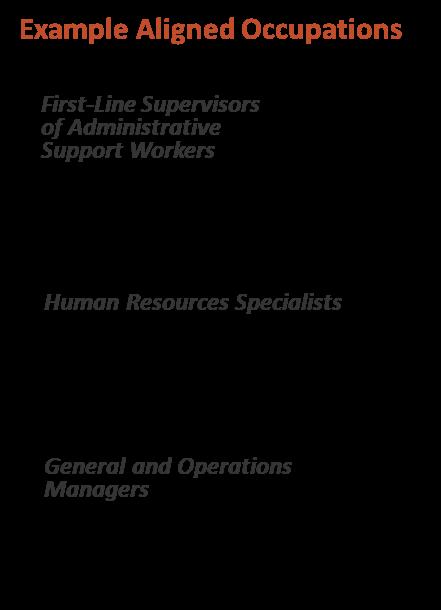

For more information visit: https://tea.texas.gov/academics/college-career-and-militaryprep/career-and-technical-education/programs-of-studyadditional-resources


Business Management Course Descriptions:
Business Information Management I- CMP1120 (1 Credit)
Level: 1
Prerequisites: None

Course Fee: None
GPA Weight: Regular
In Business Information Management I, students implement personal and interpersonal skills to strengthen individual performance in the workplace and in society and make a successful transition to the workforce and postsecondary education. Students apply technical skills to address business applications of emerging technologies, create word-processing documents, develop a spreadsheet, formulate a database, and make an electronic presentation using appropriate software.
Principles of Business, Marketing, & Finance- BUS0000 (1 Credit)
Level: 1
Prerequisite: None
Course Fee: None
GPA Weight: Regular
In Principles of Business, Marketing, and Finance, students gain knowledge and skills in economies and private enterprise systems, the impact of global business, the marketing of goods and services, advertising, and product pricing. Students analyze the sales process and financial management principles. This course allows students to reinforce, apply, and transfer academic knowledge and skills to a variety of interesting and relevant activities, problems, and settings in business, marketing, and finance.
Business Information Management II- CMP1220 (1 Credit)
Level: 2
Prerequisite: Business Information Management I
Course Fee: None
GPA Weight: Regular
In Business Information Management II, students implement personal and interpersonal skills to strengthen individual performance in the workplace and in society and make a successful transition to the workforce or postsecondary education. Students apply technical skills to address business applications of emerging technologies, create complex wordprocessing documents, develop sophisticated spreadsheets using charts and graphs, and make an electronic presentation using appropriate multimedia software.
Entrepreneurship- BUS1220 (1 Credit)
Level: 2
Prerequisite: None
Course Fee: None
GPA Weight: Regular
Students will learn the principles necessary to begin and operate a business. The primary focus of the course is to help students understand the process of analyzing a business opportunity, preparing a business plan, determining feasibility of an idea using research, and developing a plan to organize and promote the business and its products and services.

Successful completion of the Business Management program of study will fulfill requirements of the Business and Industry endorsement.

Business Management- BUS3340 (1 Credit)
Level: 3
Prerequisite: None
Course Fee: None
GPA Weight: Regular or Advanced
Business Management is designed to familiarize students with the concepts related to business management as well as the functions of management, including planning, organizing, staffing, leading, and controlling. Students will also demonstrate interpersonal and project-management skills. Available for Dual Credit from Lone Star College (BUSI1301)
Statistics & Business Decision Making- BUS4200 (1 Credit)
Level: 4
Prerequisite: Algebra II
Course Fee: None
GPA Weight: Regular
Statistics and Business Decision Making is an introduction to statistics and the application of statistics to business decision making. Students will use statistics to make business decisions. Students will determine the appropriateness of methods used to collect data to ensure conclusions are valid. Note: This course satisfies a math credit requirement for students on the Foundation High School Program.
Practicum in Business Mgmt- BUS4100 (2 Credits)
Level: 4
Prerequisite: 2 credits in the Program of Study
Course Fee: None
GPA Weight: Regular
Practicum in Business Management is designed to give students supervised practical application of previously studied knowledge and skills. Practicum experiences occur in a paid or unpaid arrangement and a variety of locations appropriate to the nature and level of experience. Students implement personal and interpersonal skills to strengthen individual performance in the workplace and in society and to make a successful transition to the workforce or postsecondary education. Students apply technical skills to address business applications of emerging technologies. Students develop a foundation in the economic, financial, technological, international, social, and ethical aspects of business to become competent consumers, employees, and entrepreneurs. Students enhance reading, writing, computing, communication, and reasoning skills and apply them to the business environment. Students incorporate a broad base of knowledge that includes the legal, managerial, marketing, financial, ethical, and international dimensions of business to make appropriate business decisions.

For more information visit: https://tea.texas.gov/academics/college-careerand-military-prep/career-and-technicaleducation/programs-of-study-additional-resources

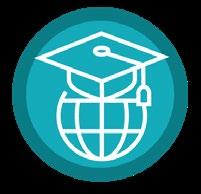
Computer Science
The Computer Science program of study focuses on occupational and educational opportunities associated with researching, designing, developing, testing, and operating systems-level software, compilers, and network distribution software for medical, industrial, military, communications, aerospace, business, scientific, and general computer applications. This program of study includes creating, modifying, and testing the codes, forms, and script that allow computer applications to run.
Courses for High School Credit
Level 1
Level 2
Level 3
Level 4

• Computer Science I
• AP Computer Science A
• Entrepreneurship
• Computer Science II
• Computer Science III
Aligned Industry-Based Certifications
• Information Technology Specialist: Java
• Oracle Certified Associate Java SE 8 Programmer
Work-Based Learning and Expanded Learning Opportunities
Work-Based Learning Activities
Expanded Learning Opportunities
• Intern at a local IT company to develop skills in programming and coding
• Shadow a software developer to learn how they create and improve software to support efficient processes at their company
• Program and create a game
Example Postsecondary Opportunities
Apprenticeships
• Computer Programmer Apprenticeship

Associate Degrees
• Computer Programming
• Web Page, Digital/Multimedia and Information Resources Design
Bachelor’s Degrees
• Data Science
• Computer Engineering
Master’s, Doctoral, and Professional Degrees
• Management Science
• Computer Software Engineering
Additional Stackable IBCs/License
• AWS Certified Developer Associate

Example Aligned Occupations
(Based on statewide employment data)
Computer User Support Specialists
Median Wage: $51,411
Annual Openings: 5,757 10-Year Growth: 21%
Software Developers




Median Wage: $111,705
Annual Openings: 15,324 10-Year Growth: 36%
Computer Programmers
Median Wage: $87,997
Annual Openings: 1,176 10-Year Growth: 4%

Computer Science Course Descriptions:
Computer Science I - COS1020Q (1 Credit)
Level: 1
Prerequisite or Corequisite:
Algebra I

Course Fee: $20
GPA Weight: Advanced
Computer Science I will foster students' creativity and innovation by presenting opportunities to design, implement, and present meaningful programs through a variety of media. Students will collaborate with one another, their instructor, and various electronic communities to solve the problems presented throughout the course. Through data analysis, students will identify task requirements, plan search strategies, and use computer science concepts to access, analyze, and evaluate information needed to solve problems. By using computer science knowledge and skills that support the work of individuals and groups in solving problems, students will select the technology appropriate for the task, synthesize knowledge, create solutions, and evaluate the results. Students will learn digital citizenship by researching current laws and regulations and by practicing integrity and respect. Students will gain an understanding of the principles of computer science through the study of technology operations, systems, and concepts. The six strands include creativity and innovation; communication and collaboration; research and information fluency; critical thinking; problem solving, and decision making; digital citizenship; and technology operations and concepts.
AP Computer Science A- COS1330P (2 credits)
Level: 2
Prerequisites: None
Course Fee: None
GPA Weight: Advanced
AP Computer Science A introduces students to computer science through programming. Fundamental topics in this course include the design of solutions to problems, the use of data structures to organize large sets of data, the development and implementation of algorithms to process data and discover new information, the analysis of potential solutions, and the ethical and social implications of computing systems. The course emphasizes object-oriented programming and design using the Java programming language.
Note: This course satisfies a math and LOTE credit requirement for students on the Foundation High School Program.
Entrepreneurship- BUS1220 (1 credit)
Level: 2
Prerequisites: None
Course Fee: None
GPA Weight: Regular
Students will learn the principles necessary to begin and operate a business. The primary focus of the course is to help students understand the process of analyzing a business opportunity, preparing a business plan, determining feasibility of an idea using research, and developing a plan to organize and promote the business and its products and services.

Successful completion of the Computer Science program of study will fulfill requirements of the STEM endorsement if the math and science requirements are met or the Business and Industry endorsement.
Computer Science II - COS2200H (1 credit)
Level: 3
Course Fee: $20
Prerequisites: Algebra I and Computer Science I GPA Weight: Advanced
Computer Science II will foster students' creativity and innovation by presenting opportunities to design, implement, and present meaningful programs through a variety of media. Students will collaborate with one another, their instructor, and various electronic communities to solve the problems presented throughout the course. Through data analysis, students will identify task requirements, plan search strategies, and use computer science concepts to access, analyze, and evaluate information needed to solve problems. By using computer science knowledge and skills that support the work of individuals and groups in solving problems, students will select the technology appropriate for the task, synthesize knowledge, create solutions, and evaluate the results. Students will learn digital citizenship by researching current laws and regulations and by practicing integrity and respect. Students will gain an understanding of computer science through the study of technology operations, systems, and concepts. The six strands include creativity and innovation; communication and collaboration; research and information fluency; critical thinking; problem solving, and decision making; digital citizenship; and technology operations and concepts.
Computer Science III - COS3100H (1 credit)
Level: 4
Course Fee: $20
Prerequisites: Comp. Sci. II, AP Comp Science A GPA Weight: Advanced
Computer Science III will foster students' creativity and innovation by presenting opportunities to design, implement, and present meaningful programs through a variety of media. Students will collaborate with one another, their instructor, and various electronic communities to solve the problems presented throughout the course. Through data analysis, students will identify task requirements, plan search strategies, and use computer science concepts to access, analyze, and evaluate information needed to solve problems. By using computer science knowledge and skills that support the work of individuals and groups in solving problems, students will select the technology appropriate for the task, synthesize knowledge, create solutions, and evaluate the results. Students will learn digital citizenship by researching current laws and regulations and by practicing integrity and respect. Students will gain an understanding of advanced computer science data structures through the study of technology operations, systems, and concepts. The six strands include creativity and innovation; communication and collaboration; research and information fluency; critical thinking; problem solving, and decision making; digital citizenship; and technology operations and concepts.

For more information visit: https://tea.texas.gov/academics/college-career-and-militaryprep/career-and-technical-education/programs-of-studyadditional-resources
Construction Technology
The Construction Technology program of study focuses on occupational and educational opportunities related to constructing, installing, and repairing structures and fixtures made of wood (including frameworks, partitions, joists, studding, rafters, and stairways). The program of study includes installing, dismantling, or moving machinery and heavy equipment according to layout plans, blueprints, or other drawings.

Level 1
Level 2
Level 3
Level 4
Courses for High School Credit
• Principles of Architecture
• Construction Technology I
• Entrepreneurship
• Construction Technology II
• Practicum in Construction Technology
Aligned Industry-Based Certifications
• NCCER Carpentry Level I
Work-Based Learning
And Expanded Learning Opportunities
Work-Based Learning Activities

Expanded Learning Opportunities
• Intern with a carpenter to practice skills such as measuring materials and assembling structures
• Participate in a pre-apprenticeship that includes activities like installing cabinets, drywall, and siding
• Shadow a construction manager to learn more about how construction teams work together to complete projects
• Participate in SkillsUSA


Example Postsecondary Opportunities
Apprenticeships
• Carpenter Associate Degrees
• Construction Management
• Construction Engineering Technology
• Building Construction Technology
Bachelor’s Degrees
• Construction Engineering
• Construction Science
• Construction Site Management

Master’s, Doctoral, and Professional Degrees
• Construction Engineering Technology
• Construction Engineering
• Construction Management
• Project Management
Example Aligned Occupations (Based on statewide employment data)

Drywall and Ceiling Tile Installers
Median Wage: $44,699
Annual Openings: 758 10-Year Growth: 14%
Carpenters
Median Wage: $46,272
Annual Openings: 5,623 10-Year Growth: 15%
Construction Managers
Median Wage: $95,072
Annual Openings: 6,325 10-Year Growth: 24%

For more information visit: https://tea.texas.gov/academics/college-career-and-militaryprep/career-and-technical-education/programs-of-studyadditional-resources
Successful completion of the Construction Technology program of study will fulfill requirements of the Business and Industry endorsement.
Construction Technology Course Descriptions:
Principles of Architecture- ACS0120 (1 Credit)
Level: 1
Prerequisites: None

Course Fee: None
GPA Weight: Regular
Principles of Architecture provides an overview to the various fields of architecture, interior design, and construction management. Achieving proficiency in decision making and problem solving is an essential skill for career planning and lifelong learning. Students use self-knowledge, education, and career information to set and achieve realistic career and educational goals. Job Specific training can be provided through training modules that identify career goals in trade and industry areas. Classroom studies include topics such as safety, work ethics, communication, information technology applications, systems, health, environment, leadership, teamwork, ethical and legal responsibility, employability, and career development and include skills such as problem solving, critical thinking, and reading technical drawings.

Construction Technology I- ACS2020 (2 credits)
Level: 2
Prerequisites: None
Course Fee: $50
GPA Weight: Regular
In Construction Technology I, students will gain knowledge and skills needed to enter the workforce as carpenters or building maintenance supervisors or to prepare for a postsecondary degree in construction management, architecture, or engineering. Students will acquire knowledge and skills in safety, tool usage, building materials, codes, and framing. For safety and liability considerations, limiting course enrollment to 15 students is recommended.
Entrepreneurship- BUS1220 (1 credit)
Level: 2
Prerequisites: None
Course Fee: None
GPA Weight: Regular
Students will learn the principles necessary to begin and operate a business. The primary focus of the course is to help students understand the process of analyzing a business opportunity, preparing a business plan, determining feasibility of an idea using research, and developing a plan to organize and promote the business and its products and services.

Successful completion of the Construction Technology program of study will fulfill requirements of the Business and Industry endorsement.
Construction Technology II- ACS2500 (2 credits)
Level: 3
Course Fee: $50
Prerequisite: Construction Tech. I GPA Weight: Regular
In Construction Technology II, students will gain advanced knowledge and skills needed to enter the workforce as carpenters, building maintenance technicians, or supervisors or to prepare for a postsecondary degree in construction management, architecture, or engineering. Students will build on the knowledge base from Construction Technology I and are introduced to exterior and interior finish out skills. For safety and liability considerations, limiting course enrollment to 15 students is recommended.
Practicum in Construction Technology- ACS4140 (2 credits)
Level: 4
Prerequisites: Construction Tech. II
Course Fee: $50
GPA Weight: Regular
In Practicum in Construction Technology, students will be challenged with the application of knowledge and skills gained in previous construction-related coursework. In many cases students will be allowed to work at a job (paid or unpaid) outside of school or be involved in local projects the school has approved for this class.


For more information visit: https://tea.texas.gov/academics/college-career-and-militaryprep/career-and-technical-education/programs-of-studyadditional-resources
Culinary Arts
The Culinary Arts program of study focuses on occupational and educational opportunities associated with the planning, directing, or coordinating activities of a food and beverage organization or department. This program of study includes opportunities involved in directing and participating in the preparation of food.

Courses for High School Credit
Level 1
Level 2
Level 3
Level 4
• Introduction to Culinary Arts
• Culinary Arts
• Entrepreneurship
• Advanced Culinary Arts
• Food Science
• Practicum in Culinary Arts
Aligned Industry-Based Certifications
• AMSA Culinary Meat Selection & Cookery
• ServSafe Manager
Work-Based Learning and
Expanded Learning
Opportunities
• Shadow a director of a non-profit that produces and delivers food for communities in need


Work-Based Learning Activities
Expanded Learning Opportunities
• Intern at a catering company and learn about food production for large-scale events
• Work part-time in a restaurant as a line cook or chef
• Participate in FCCLA
• Participate in SkillsUSA
• Participate in American Culinary Association or the Texas Restaurant Association




Example Postsecondary Opportunities
Associate Degrees
• Culinary Arts
• Baking and Pastry Arts
Bachelor’s Degrees

• Hotel/Motel Administration/Management
• Culinary Science
Master’s, Doctoral, and Professional Degrees
• Organizational Leadership
• Foodservice Systems Administration/Management
Additional Stackable IBCs/License
• Food Manager License
Example Aligned Occupations

(Based on statewide employment data) Bakers
Median Wage: $29,466
Annual Openings: 2,942
10-Year Growth: 26%
Chefs and Head Cooks
Median Wage: $44,761
Annual Openings: 950
10-Year Growth: 37%
General and Operations Managers
Median Wage: $83,220
Annual Openings: 25,450
10-Year Growth: 23%

For more information visit: https://tea.texas.gov/academics/college-career-and-militaryprep/career-and-technical-education/programs-of-studyadditional-resources
Culinary Arts Course Descriptions:
Introduction to Culinary Arts-CUL2000 (1 credit)
Level: 1
Prerequisites: None

Course Fee: $15
GPA Weight: Regular
Introduction to Culinary Arts will emphasize the principles of planning, organizing, staffing, directing, and controlling the management of a variety of food service operations. The course will provide insight into the operation of a well-run restaurant. Introduction to Culinary Arts will provide insight into food production skills, various levels of industry management, and hospitality skills. This is an entry level course for students interested in pursuing a career in the food service industry. This course is offered as a classroom and laboratory-based course.
Culinary Arts-CUL3000 (2 credits)
Level: 2
Prerequisites: None
Course Fee: None
GPA Weight: Regular
Culinary Arts begins with the fundamentals and principles of the art of cooking and the science of baking and includes management and production skills and techniques. Students can pursue a national sanitation certification or other appropriate industry certifications. This course is offered as a laboratory-based course.
Entrepreneurship-BUS1220 (1 credit)
Level: 2
Prerequisites: None
Course Fee: None
GPA Weight: Regular
Students will learn the principles necessary to begin and operate a business. The primary focus of the course is to help students understand the process of analyzing a business opportunity, preparing a business plan, determining feasibility of an idea using research, and developing a plan to organize and promote the business and its products and services.
Advanced Culinary Arts-CUL4000 (2 credits)
Level: 3
Prerequisites: Culinary Arts
Course Fee: $55
GPA Weight: Regular
Advanced Culinary Arts will extend content and enhance skills introduced in Culinary Arts by in depth instruction of industry-driven standards to prepare students for success in higher education, certifications, and/or immediate employment.

Food Science-CUL4010 (1 credit)
Level: 4
Prerequisites: Biology, Chemistry, + 1 additional Science, +1 additional credit in Program of Study.
Course Fee: $15
GPA Weight: Regular
In Food Science students conduct laboratory and field investigations, use scientific methods during investigations, and make informed decisions using critical thinking and scientific problem solving. Food Science is the study of the nature of foods, the causes of deterioration in food products, the principles underlying food processing, and the improvement of foods for the consuming public. Note: This course satisfies a science credit requirement for students on the Foundation High School Program.
Practicum in Culinary Arts-CUL4100 (2 credits)
Level: 4
Course Fee: $55
Prerequisites: Culinary Arts GPA Weight: Regular
Practicum in Culinary Arts is a unique practicum that provides occupationally specific opportunities for students to participate in a learning experience that combines classroom instruction with actual business and industry career experiences. Practicum in Culinary Arts integrates academic and career and technical education; provides more interdisciplinary instruction; and supports strong partnerships among schools, businesses, and community institutions with the goal of preparing students with a variety of skills in a fast-changing culinary art-based workplace.


For
Culinary
Cybersecurity
The Cybersecurity program of study focuses on occupational and educational opportunities associated with planning, implementing, upgrading, or monitoring security measures for the protection of computer networks and information. This program of study includes responding to computer security breaches and viruses and administering network security measures.

Courses for High School Credit
Level
Level
Level

•
• Cybersecurity Capstone
Aligned Industry-Based Certifications
• CompTIA A+ Certification
• CompTIA Network+
Work-Based Learning and Expanded Learning Opportunities
Work-Based Learning Activities
Expanded Learning Opportunities
• Intern at a local bank, hospital, or government office to develop skills in implementing security measures
• Interview with an information security analyst to learn how they plan for, monitor, and upgrade security measures at their organization
• Participate in a Hackathon
• Participate in TSA or SkillsUSA


Successful completion




Examples Postsecondary Opportunities
Associate Degrees
• Computer and Information Systems Security

• Computer Programming
Bachelor’s Degrees
• Computer Science
• Computer Software Engineering
Master’s, Doctoral, and Professional Degrees
• Computer and Information Systems
Security/Auditing/Information Assurance
• Computer Software Engineering
Additional Stackable IBCs/License
• Certified Ethical Hacker (CEH)
Example Aligned Occupations (Based on statewide employment data)

Computer User Support Specialists
Median Wage: $51,411
Annual Openings: 5,757
10-Year Growth: 21%
Software Developers
Median Wage: $111,705
Annual Openings: 15,324
10-Year Growth: 36%
Information Security Analysts
Median Wage: $110,268
Annual Openings: 1,719
10-Year Growth: 49%

For more information visit: https://tea.texas.gov/academics/college-career-and-militaryprep/career-and-technical-education/programs-of-study-additionalresources
Cybersecurity Course Descriptions:

Foundations of Cybersecurity - CYB2000Q (1 credit)
Level: 1
Prerequisites: None

Course Fee: None
GPA Weight: Advanced
In the Foundations of Cybersecurity course, students will develop the knowledge and skills needed to explore fundamental concepts related to the ethics, laws, and operations of cybersecurity. Students will examine trends and operations of cyberattacks, threats, and vulnerabilities. Students will review and explore security policies designed to mitigate risks. The skills obtained in this course prepare students for additional study in cybersecurity. A variety of courses are available to students interested in this field. Foundations of Cybersecurity may serve as an introductory course in this field of study.
AP Computer Science Principles- COS2000P (1 credit)
Level: 2
Prerequisite: Algebra 1
Course Fee: None
GPA Weight: Advanced
AP Computer Science Principles is an introductory college-level computing course that introduces students to the breadth of the field of computer science. Students learn to design and evaluate solutions and to apply computer science to solve problems through the development of algorithms and programs. They incorporate abstraction into programs and use data to discover new knowledge. Students also explain how computing innovations and computing systems including the internet work, explore their potential impacts, and contribute to a computing culture that is collaborative and ethical.

Successful completion of the Cybersecurity program of study will fulfill requirements of the STEM endorsement if the math and science requirements are met or the Business and Industry endorsement.
Internetworking Technologies- CYB1500Q (1 credit)
Level: 3
Prerequisite: None
Course Fee: None
GPA Weight: Advanced
The Internetworking Technologies I course is normally comprised of the courses called Cisco CCNA R&S: Introduction to Networks (CCNA 1) and Cisco CCNA R&S: Routing and Switching Essentials (CCNA 2). The Introduction to Networks course introduces the concept of networking, using various analogies to help the student understand the movement of packets throughout the Internet, and the protocol standards used. The Routing and Switching course moves the student into the theory of “moving packets.” The concepts of routing and switching “packets” to the correct destination is covered, and how a network administrator can direct and/or streamline this process through device configuration and deployment.
Cybersecurity Capstone- CYB4000Q (1 Credit)
Level: 4
Prerequisites: Foundations of Cybersecurity
Course Fee: None
GPA Weight: Advanced
In the Cybersecurity Capstone course, students will develop the knowledge and skills needed to explore advanced concepts related to the ethics, laws, and operations of cybersecurity. Students will examine trends and operations of cyberattacks, threats, and vulnerabilities. Students will develop security policies to mitigate risks. The skills obtained in this course prepare students for additional study toward industry certification. A variety of courses are available to students interested in the cybersecurity field. Cybersecurity Capstone may serve as a culminating course in this field of study.


For more information visit: https://tea.texas.gov/academics/college-career-and-militaryprep/career-and-technical-education/programs-of-study-additionalresources
Dentistry
The Dentistry program of study focuses on occupational and educational opportunities associated with diagnosing and treating acute, episodic, or chronic illness independently or as part of a healthcare team. This program of study includes exploration of patient treatment and preventative programs that help build or restore dental health.

Courses for High School Credit
Level 1
Level 2
Level 3

Level 4
• Principles of Health Science
• Medical Terminology
• Anatomy and Physiology
• Health Science Theory
• Health Science Clinicals
• Practicum in Health ScienceDentistry
Aligned Industry-Based Certifications
• Certified EKG Technician
• Registered Dental Assistant X-Ray Certification
Work-Based Learning and Expanded Learning Opportunities
Work-Based Learning Activities
Expanded Learning Opportunities
• Intern with a dental hygienist or dentist
• Participate in job shadowing experiences
• Participate in Health Occupation Students of America (HOSA) or SkillsUSA



Example Postsecondary Opportunities
Apprenticeships
• Medical Assistant Associate Degrees
• Emergency Medical Technology
• Radiologic Technology/Science Bachelor’s Degrees
• Emergency Medical Technology

• Medical Insurance Coding Master’s, Doctoral, and Professional Degrees
• Medicine
• Occupational Therapy
Additional Stackable IBCs/License
• Registered Diagnostic Medical Sonographer
Example Aligned Occupations

(Based on statewide employment data) Dental Assistants
Median Wage: $39,641
Annual Openings: 5,603
10-Year Growth: 20%
Dental Hygienists
Median Wage: $87,272
Annual Openings: 1,047
10-Year Growth: 20%
Dentists- General
Median Wage: $172,269
Annual Openings: 492
10-Year Growth: 17%

For more information visit: https://tea.texas.gov/academics/college-career-and-militaryprep/career-and-technical-education/programs-of-studyadditional-resources
Dentistry Course Descriptions:

Principles of Health Science- HLT2000 (1 Credit)
Level: 1
Prerequisite: None
Course Fee: $15
GPA Weight: Regular
The Principles of Health Science course is designed to provide an overview of the therapeutic, diagnostic, health informatics, support services, and biotechnology research and development systems of the healthcare industry.
Medical Terminology- HLT1000MT (1 Credit)
Level: 2
Prerequisite: None
Course Fee: None
GPA Weight: Regular
The Medical Terminology course is designed to introduce students to the structure of medical terms, including prefixes, suffixes, word roots, singular and plural forms, and medical abbreviations. The course allows students to achieve comprehension of medical vocabulary appropriate to medical procedures, human anatomy and physiology, and pathophysiology.
Health Science Theory- HLT3100 (1 Credit)
Level: 3
Prerequisite: Biology and 1 Additional Health Science Course
Course Fee: $15 + Uniform
GPA Weight: Regular
The Health Science Theory course is designed to provide for the development of advanced knowledge and skills related to a wide variety of health careers. Students will employ hands-on experiences for continued knowledge and skill development.
Health Science Clinicals- HLT2110 (2 Credits)
Level: 3
Prerequisite: Biology and 1 Additional Health Science Course
Course Fee: $100 + Uniform
GPA Weight: Regular
The Health Science Clinical course is designed to provide for the development of advanced knowledge and skills related to a wide variety of health careers. Students will employ hands-on experiences for continued knowledge and skill development. Districts are encouraged to offer this course in a consecutive block with Health Science Theory to allow students sufficient time to master the content of both courses.
Anatomy and Physiology- SCI4240(D) (1 Credit)
Level: 3
Prerequisite: Biology and Chemistry, IPC, or Physics
Course Fee: $15
GPA Weight: Regular or Advanced
The Anatomy and Physiology course is designed for students to conduct laboratory and field investigations, use scientific methods during investigations, and make informed decisions using critical thinking and scientific problem solving. Students in Anatomy and Physiology will study a variety of topics, including the structure and function of the human body and the interaction of body systems for maintaining homeostasis. Note: This course satisfies a science credit requirement for students on the Foundation High School Program.
Available for Dual Credit from Lone Star College (BIOL2401, 2)
Practicum in Dentistry- HLT3620 (2 Credits)
Level: 4
Prerequisite: Health Science Theory/Clinicals, Biology, and 1 Additional Health Science Course
Course Fee: $100 + Uniform
GPA Weight: Regular
The Practicum in Dentistry course is designed to give students practical application of previously studied knowledge and skills. Practicum experiences can occur in a variety of locations appropriate to the nature and level of experience.
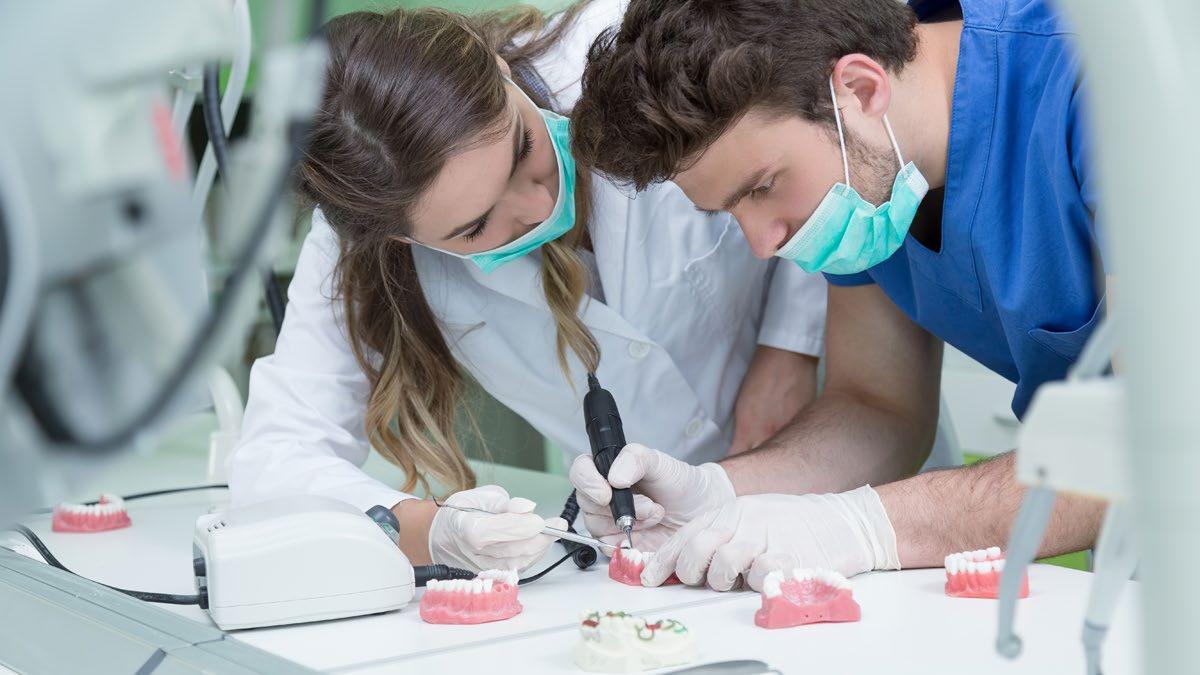

Successful completion of the Dentistry program of study will fulfill requirements of the Public Services endorsement.

For more information visit: https://tea.texas.gov/academics/college-career-and-militaryprep/career-and-technical-education/programs-of-studyadditional-resources

Electrical Technology
The Electrical Technology program of study focuses on occupational and educational opportunities associated with installing, maintaining, and repairing electrical wiring, equipment, and fixtures.

Courses for High School Credit
Level 1
Level 2
Level 3
Level 4

• Principles of Applied Engineering
• Foundations of Energy
• AC/DC Electronics
• Electrical Technology I
• Electrical Technology II
Aligned Post-Secondary Credential
• Electrical Technology, Level 1 Certificate (Awarded by Lone Star College)
Work-Based Learning
and Expanded Learning Opportunities
• Participate in an internship with an electrical company to develop installation skills
Work-Based Learning Activities
Expanded Learning Opportunities
• Join a pre-apprenticeship program that involved determining if electrical wiring is up to code
• Interview an electrician about their training and education
• Tour an electrical company / job site



Example Postsecondary Opportunities
Apprenticeships
• Electrician
Associate Degrees
• Electrical and Power Transmission
Installation
• Electrical Power and Controls
• Electromechanical Technology Bachelor’s Degrees
• Construction Engineering

• Electrical, Electronic, and Communications
• Engineering, Electrical Engineering Master’s, Doctoral, and Professional Degrees
• Construction Engineering
• Construction Management Additional Stackable IBCs/License
• Journeyman Electrician
• Master Electrician
Example Aligned Occupations
(Based on statewide employment data)

Electrician Helpers
Median Wage: $38,140
Annual Openings: 1,632
10-Year Growth: 20%
Electricians
Median Wage: $54,769
Annual Openings: 9,221
10-Year Growth: 27%
Construction Managers
Median Wage: $95,072
Annual Openings: 6,325
10-Year Growth: 24%

For more information
Electrical Technology Course Descriptions:
Principles of Applied Engineering- NRG0000 (1 Credit)
Level: 1
Prerequisites: None

Course Fee: None
GPA Weight: Regular
Principles of Applied Engineering provides an overview of the various fields of science, technology, engineering, and mathematics and their interrelationships. Students will develop engineering communication skills, which include computer graphics, modeling, and presentations, by using a variety of computer hardware and software applications to complete assignments and projects. Upon completing this course, students will understand the various fields of engineering and will be able to make informed career decisions. Further, students will have worked on a design team to develop a product or system. Students will use multiple software applications to prepare and present course assignments.

Foundations of Energy- NRG1500 (1 credit)
Level: 2
Prerequisites: None
Course Fee: None
GPA Weight: Regular
Foundations of Energy provides students with the fundamentals of Texas energy resources from conventional, unconventional, and renewable sources. Students develop knowledge and skills regarding career and educational opportunities in the production, transmission, and use of energy in Texas, including import and export markets for energy.
AC/DC Electronics- NRG1003D (1 credit)
Level: 3
Prerequisites: None
Course Fee: $125 per semester
GPA Weight: Advanced
AC/DC Electronics focuses on the basic electricity principles of alternating current/direct current (AC/DC) circuits. Students will demonstrate knowledge and applications of circuits, electronic measurement, and electronic implementation. Through use of the design process, students will transfer academic skills to component designs in a project-based environment. Students will use a variety of computer hardware and software applications to complete assignments and projects. Additionally, students will explore career opportunities, employer expectations, and educational needs in the electronics industry.
Note: This course will be taken at the Lone Star College - Creekside Center.

Successful completion of the Electrical Technology program of study will fulfill requirements of the STEM endorsement if the math and science requirements are met or the Business and Industry endorsement.
Electrical Technology I- NRG2105D (1 credit)
Level: 3
Prerequisites: None
Course Fee: $125 per semester
GPA Weight: Advanced
In Electrical Technology I, students will gain knowledge and skills needed to enter the workforce as an electrician or building maintenance supervisor, prepare for a postsecondary degree in a specified field of construction or construction management, or pursue an approved apprenticeship program. Students will acquire knowledge and skills in safety, electrical theory, tools, codes, installation of electrical equipment, and the reading of electrical drawings, schematics, and specifications.
Note: This course will be taken at the Lone Star College - Creekside Center.
Electrical Technology II - NRG3300D (2 credits)
Level: 4
Course Fee: $125 per semester
Prerequisites: Electrical Tech I GPA Weight: Advanced
In Electrical Technology II, students will gain advanced knowledge and skills needed to enter the workforce as an electrician, a building maintenance technician, or a supervisor; prepare for a postsecondary degree in a specified field of construction or construction management; or pursue an approved apprenticeship program. Students will acquire knowledge and skills in safety, electrical theory, tools, codes, installation of electrical equipment, alternating current and direct current motors, conductor installation, installation of electrical services, and electric lighting installation.
Note: This course will be taken at the Lone Star College - Creekside Center.


For more information visit: https://tea.texas.gov/academics/college-career-andmilitary-prep/career-and-technical-education/programs-ofstudy-additional-resources
Emergency Medicine (EMT)
The Emergency Medicine program of study focuses on occupational and educational opportunities associated with providing basic emergency care and life support. The program of study includes coursework and hands-on experiences.

Courses for High School Credit
Level 1
Level 2
Level 3
Level 4

• Principles of Health Science
• Medical Terminology
• Anatomy and Physiology
• Health Science Theory
• Health Science Clinicals
• Practicum in Health Science- EMT
Aligned Industry-Based Certifications
• Certified EKG Technician
• Emergency Medical Technician- Basic
Work-Based Learning and Expanded Learning
Opportunities
Work-Based Learning Activities
Expanded Learning Opportunities
• Participate in job shadowing experiences such as Emergency Medical Services (EMS) ride along or hospital/clinical job
• Participate in Health Occupation Students of America (HOSA) or SkillsUSA
• Participate in Advanced Medical Ambulance Bus (AMBUS) event or Community Emergency Response Team (CERT) event
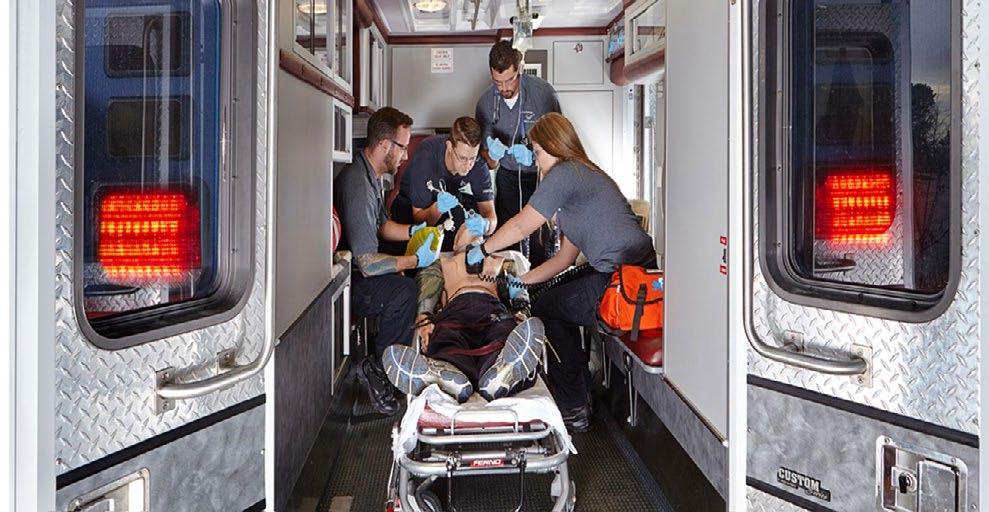

Successful completion of the Emergency Medicine (EMT) program of study will fulfill requirements of the Public Services endorsement.
Example Postsecondary Opportunities
Apprenticeships
• Emergency Care Attendant (ECA)
Associate Degrees

• Emergency Medical Technology- Paramedic Bachelor’s Degrees
• Emergency Medical Technology
Master’s, Doctoral, and Professional Degrees
• Medicine
Additional Stackable IBCs/License
• Advanced EMT
Example Aligned Occupations
(Based on statewide employment data)

Emergency Medical Technicians
Median Wage: $31,243
Annual Openings: 1,177
10-Year Growth: 2.2%
Paramedic
Median Wage: $52,049
Annual Openings: 616
10-Year Growth: 2%
Emergency Medicine Physician
Median Wage: $209,998
Annual Openings: N/A
10-Year Growth: 4%
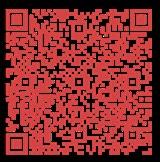
For more information visit: https://tea.texas.gov/academics/college-career-and-militaryprep/career-and-technical-education/programs-of-studyadditional-resources
Emergency Medicine (EMT) Course Descriptions:

Principles of Health Science- HLT2000 (1 Credit)
Level: 1
Prerequisite: None
Course Fee: $15
GPA Weight: Regular
The Principles of Health Science course is designed to provide an overview of the therapeutic, diagnostic, health informatics, support services, and biotechnology research and development systems of the healthcare industry.
Medical Terminology- HLT1000MT (1 Credit)
Level: 2
Prerequisite: None
Course Fee: None
GPA Weight: Regular
The Medical Terminology course is designed to introduce students to the structure of medical terms, including prefixes, suffixes, word roots, singular and plural forms, and medical abbreviations. The course allows students to achieve comprehension of medical vocabulary appropriate to medical procedures, human anatomy and physiology, and pathophysiology.
Health Science Theory- HLT3100 (1 Credit)
Level: 3
Prerequisite: Biology and 1 Additional Health Science Course
Course Fee: $15 + Uniform
GPA Weight: Regular
The Health Science Theory course is designed to provide for the development of advanced knowledge and skills related to a wide variety of health careers. Students will employ hands-on experiences for continued knowledge and skill development.
Health Science Clinicals- HLT2110 (2 Credits)
Level: 3
Prerequisite: Biology and 1
Additional Health Science Course
Course Fee: $100 + Uniform
GPA Weight: Regular
The Health Science Clinical course is designed to provide for the development of advanced knowledge and skills related to a wide variety of health careers. Students will employ hands-on experiences for continued knowledge and skill development. Districts are encouraged to offer this course in a consecutive block with Health Science Theory to allow students sufficient time to master the content of both courses.

Successful completion of the Emergency Medicine (EMT) program of study will fulfill requirements of the Public Services endorsement.
Anatomy and Physiology- SCI4240(D) (1 Credit)
Level: 3
Prerequisite: Biology and Chemistry, IPC, or Physics
Course Fee: $15
GPA Weight: Regular or Advanced
The Anatomy and Physiology course is designed for students to conduct laboratory and field investigations, use scientific methods during investigations, and make informed decisions using critical thinking and scientific problem solving. Students in Anatomy and Physiology will study a variety of topics, including the structure and function of the human body and the interaction of body systems for maintaining homeostasis. Note: This course satisfies a science credit requirement for students on the Foundation High School Program.
Available for Dual Credit from Lone Star College (BIOL2401, 2)
Practicum in EMT- HLT3320 (2 Credits)
Level: 4
Prerequisite: Health Science Theory/Clinicals, Biology, and 1 Additional Health Science Course
Course Fee: $75 + Uniform + Immunization Fees
GPA Weight: Regular
The Practicum in Emergency Medicine course is designed to give students practical application of previously studied knowledge and skills. Practicum experiences can occur in a variety of locations appropriate to the nature and level of experience.


For more information visit: https://tea.texas.gov/academics/college-career-and-militaryprep/career-and-technical-education/programs-of-studyadditional-resources
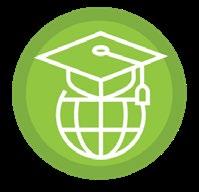

Engineering Foundations
(Project Lead the Way)
The Engineering Foundations program of study focuses on occupational and educational opportunities associated with a wide range of skills applied in the Engineering industry. Students will design, test, and evaluate projects related to engines, machines, and structures. This program of study incudes applying scientific, mathematical, and empirical evidence to solve problems through innovation, design, construction, operation, and maintenance of different engineering systems.
Courses for High School Credit
Level
•
•
Level
Aligned Industry-Based Certifications
• Autodesk Associate (Certified User) Fusion 360
Work-Based Learning and
Expanded Learning Opportunities
Work-Based Learning Activities
Expanded Learning Opportunities
• Intern at an engineering, robotics, or aerospace company.
• Visit an engineering firm and shadow multiple types of engineers.
• Participate in SkillsUSA or TSA
• Join a local engineering association and attend meetings.


Example Postsecondary Opportunities
Apprenticeships
• Industrial Engineering Technician Apprenticeship
Associate Degrees

• Manufacturing Engineering Technology/ Technician
• Robotics Technology/Technician
Bachelor’s Degrees
• Electrical and Electronics Engineering
• Engineering, General Master’s, Doctoral, and Professional Degrees
• Electrical and Electronics Engineering
• Engineering, General
Additional Stackable IBCs/Licensures
• Professional Engineer (PE License)
• Engineer in Training Certification (EIT)
Example Aligned Occupations (Based on statewide employment data)
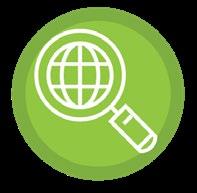
Civil Engineering Technologists and Technicians
Median Wage: $61,138
Annual Openings: 765
Growth: 11%
Aerospace Engineers
Median Wage: $115,694
Annual Openings: 483
10-Year Growth: 18%
Mechanical Engineers
Median Wage: $99,937
Annual Openings: 1,755
10-Year Growth: 19%

Engineering Foundations Course Descriptions:
Introduction to Engineering - STE0120H (1 Credit)
Level: 1
Prerequisites: None

Course Fee: None
GPA Weight: Advanced
Introduction to Engineering Design (IED) is an Activity-Project-Problem-Based course designed to build on foundational engineering concepts with an emphasis on the application of modeling in the engineering design process to develop solutions. Embedded throughout the course are important engineering concepts, such as engineering mindset, systems thinking, and computational thinking. Students will dig deep into the engineering design process, applying math, science, and engineering standards to hands-on projects. Students will work both individually and in teams to design solutions to a variety of problems using 3-D modeling software and use an engineering notebook to document their work. This course prepares students for college, a career, or the military by developing their spatial reasoning, design thinking, problem-solving skills, and transportable skills and by exposing them to a variety of careers.
Engineering Science - STE0220H (1 credit)
Level: 2
Prerequisites:Algebra I, Biology, & Intro to Engineering
Course Fee: None
GPA Weight: Advanced
Engineering Science is an engineering course designed to expose students to some of the major concepts and technologies that they will encounter in a postsecondary program of study in any engineering domain. Students will have an opportunity to investigate engineering and high-tech careers. In Engineering Science, students will employ science, technology, engineering, and mathematical concepts in the solution of real-world challenge situations. Students will develop problem-solving skills and apply their knowledge of research and design to create solutions to various challenges. Students will also learn how to document their work and communicate their solutions to their peers and members of the professional community.
Note: This course satisfies a science credit requirement for students on the Foundation High School Program
Aerospace Engineering - STE3100H (1 credit)
Level: 3
Prerequisites: None
Course Fee: None
GPA Weight: Advanced
In this course, students explore the fundamentals of flight in air and space as they bring the concepts to life by designing and testing components, such as an airfoil, propulsion system, and a rocket. They learn orbital mechanics concepts and apply these by creating models using industry standard software. Students simulate a progression of operations to explore a planet, including creating a map of the terrain and using the map to execute a mission using an autonomous robot. Building enthusiasm while learning real-world skills related to the aerospace industry is a primary goal of the course. This course prepares students for college, a career, or the military by deepening their knowledge of aerospace concepts, developing students problem-solving skills, transportable skills (such as communication and ethical reasoning), and exposing them to a variety of careers.

Successful
Digital Electronics - STE3000H (1 credit)
Level: 3
Course Fee: $20
Prerequisites: Algebra I, Geometry GPA Weight: Advanced
Digital Electronics is the study of electronic circuits that are used to process and control digital signals. In contrast to analog electronics, where information is represented by a continuously varying voltage, digital signals are represented by two discreet voltages or logic levels. This distinction allows for greater signal speed and storage capabilities and has revolutionized the world of electronics. Digital electronics is the foundation of modern electronic devices such as cellular phones, digital audio players, laptop computers, digital cameras, and high-definition televisions. The primary focus of Digital Electronics is to expose students to the design process of combinational and sequential logic design, teamwork, communication methods, engineering standards, and technical documentation.
Note: This course satisfies a math credit requirement for students on the Foundation High School Program.
Engineering Design & Development - STE4000H (1 credit)
Level: 4
Course Fee: None
Prerequisites: 2 Courses in the Program of Study GPA Weight: Advanced
Engineering Design and Development (EDD) is an open-ended engineering research course in which students work in teams to design and develop an original solution to a well-defined and justified open-ended problem by applying an engineering design process using the knowledge and skills they developed in previous courses. EDD is appropriate for 11th and 12th-grade students. Students will perform research to select, define, and justify a problem. After carefully defining the design requirements and creating multiple solution approaches, teams of students select an approach, create, and test their solution prototype. Student teams will present and defend their original solution to an outside panel. This course prepares students for college, a career, or the military by helping them become better problem-solvers. Students learn how to manage projects and further develop their transferable skills, such as communication and ethical reasoning.


Game and App Development
The Game and App Development program of study focuses on occupational and educational opportunities associated with researching, designing, developing, testing, and operating systems-level software for games and mobile computer applications. This program of study includes creating, modifying, and testing the codes, forms, and script that allow computer applications to run.

Courses for High School Credit
• Computer Science I
Level 1
Level 2
Level 3
Level 4

Example Postsecondary Opportunities
Apprenticeships
• Computer Programmer Apprenticeship

• AP Computer Science A
• Entrepreneurship
• Game Programming and Design
• Mobile Application Development
Aligned Industry-Based Certifications
• Apple App Development with Swift
• Certified Professional Programmer
Work-Based Learning and Expanded Learning Opportunities
Work-Based Learning Activities
Expanded Learning Opportunities
• Intern at a local IT company to develop skills in programming and coding
• Shadow a software developer to learn how they create and improve software to support efficient processes at their company
• Program and create a game



Associate Degrees
• Computer Programming
• Web Page, Digital/Multimedia and Information Resources Design Bachelor’s Degrees
• Video Game Design
• Mobile Development Master’s, Doctoral, and Professional Degrees
• Software Engineering
Additional Stackable IBCs/License
• IBM iOS and Android Mobile App Developer
Example Aligned Occupations
(Based on statewide employment data)

Computer Programmers
Median Wage: $87,997
Annual Openings: 1,176
10-Year Growth: 4%
Special Effect Artists and Animators
Median Wage: $86,357
Annual Openings: N/A
10-Year Growth: 17%
Web and Digital Interface Designers
Median Wage: $105,760
Annual Openings: N/A
10-Year Growth: 26%

Game and App Development Course Descriptions:
Computer Science I - COS1020Q (1 Credit)
Level: 1
Prerequisites: None

Course Fee: $20
GPA Weight: Advanced
Computer Science I will foster students' creativity and innovation by presenting opportunities to design, implement, and present meaningful programs through a variety of media. Students will collaborate with one another, their instructor, and various electronic communities to solve the problems presented throughout the course. Through data analysis, students will identify task requirements, plan search strategies, and use computer science concepts to access, analyze, and evaluate information needed to solve problems. By using computer science knowledge and skills that support the work of individuals and groups in solving problems, students will select the technology appropriate for the task, synthesize knowledge, create solutions, and evaluate the results. Students will learn digital citizenship by researching current laws and regulations and by practicing integrity and respect. Students will gain an understanding of the principles of computer science through the study of technology operations, systems, and concepts. The six strands include creativity and innovation; communication and collaboration; research and information fluency; critical thinking; problem solving, and decision making; digital citizenship; and technology operations and concepts.
AP Computer Science A - COS1330P (2 credits)
Level: 2
Prerequisites: None
Course Fee: None
GPA Weight: Advanced
AP Computer Science A introduces students to computer science through programming. Fundamental topics in this course include the design of solutions to problems, the use of data structures to organize large sets of data, the development and implementation of algorithms to process data and discover new information, the analysis of potential solutions, and the ethical and social implications of computing systems. The course emphasizes object-oriented programming and design using the Java programming language.
Note: This course satisfies a math and LOTE credit requirement for students on the Foundation High School Program.
Entrepreneurship- BUS1220 (1 credit)
Level: 2
Prerequisites: None
Course Fee: None
GPA Weight: Regular
Students will learn the principles necessary to begin and operate a business. The primary focus of the course is to help students understand the process of analyzing a business opportunity, preparing a business plan, determining feasibility of an idea using research, and developing a plan to organize and promote the business and its products and services.

Game Programming & Design- COS1700H (1 credit)
Level: 3
Course Fee: None
Prerequisites: Algebra I GPA Weight: Advanced
Game Programming and Design will foster student creativity and innovation by presenting students with opportunities to design, implement, and present meaningful programs through a variety of media. Students will collaborate with one another, their instructor, and various electronic communities to solve gaming problems. Through data analysis, students will include the identification of task requirements, plan search strategies, and use programming concepts to access, analyze, and evaluate information needed to design games. By acquiring programming knowledge and skills that support the work of individuals and groups in solving problems, students will select the technology appropriate for the task, synthesize knowledge, create solutions, and evaluate the results. Students will learn digital citizenship by researching current laws and regulations and by practicing integrity and respect. Students will create a computer game that is presented to an evaluation panel. The six strands include creativity and innovation; communication and collaboration; research and information fluency; critical thinking; problem solving, and decision making; digital citizenship; and technology operations and concepts.
Mobile App Development -
COS4100H (1 credit)
Level: 4 Course Fee: None
Prerequisites: Algebra I GPA Weight: Advanced
Mobile Application Development will foster students' creativity and innovation by presenting opportunities to design, implement, and deliver meaningful projects using mobile computing devices. Students will collaborate with one another, their instructor, and various electronic communities to solve problems presented throughout the course. Through data analysis, students will identify task requirements, plan search strategies, and use software development concepts to access, analyze, and evaluate information needed to program mobile devices. By using software design knowledge and skills that support the work of individuals and groups in solving problems, students will select the technology appropriate for the task, synthesize knowledge, create solutions, and evaluate the results. Students will learn digital citizenship by researching current laws and regulations and by practicing integrity and respect. Students will gain an understanding of the principles of mobile application development through the study of development platforms, programming languages, and software design standards. The six strands include creativity and innovation; communication and collaboration; research and information fluency; critical thinking; problem solving, and decision making; digital citizenship; and technology operations and concepts.

For more information visit: https://tea.texas.gov/academics/college-career-and-militaryprep/career-and-technical-education/programs-of-studyadditional-resources
Graphic Design
The Graphic Design program of study focuses on occupational and educational opportunities associated with designing or creating graphics to meet specific commercial or promotional needs, such as packaging, displays, or logos. The program of study includes designing clothing and accessories and creating special effects, animation, or other visual images using film, video, computers, or other electronic tools and media for use in computer games, movies, music videos, and commercials.

Courses for High School Credit
Level 1
Level 2
Level 3
Level 4

• Principles of Arts, Audio/Video Technology, and Communications
• Graphic Design and Illustration I
• Entrepreneurship
• Graphic Design and Illustration II
• Practicum in Graphic Design
Aligned Industry-Based Certifications
• Adobe Certified Professional in Graphic Design and Illustration Using Adobe Illustrator
• Adobe Certified Professional in Visual Design Using Adobe Photoshop
Work-Based Learning and Expanded Learning Opportunities
Work-Based Learning Activities
Expanded Learning Opportunities
• Shadow an art director at a branding firm or design agency
• Intern in the marketing and communications department of a technology company
• Participate in SkillsUSA or TSA
• Participate in Student Television Network
• Join a related co-curricular or extracurricular club such as web development or computer coding



Example Postsecondary Opportunities
Associate Degrees
• Graphic Design
• Digital Arts
Bachelor’s Degrees
• Web Page, Digital/Multimedia and Information Resources Design
• Design and Visual Communications

Master’s, Doctoral, and Professional Degrees
• Game and Interactive Media Design
• Animation, Interactive Technology, Video Graphics, and Special Effects
Additional Stackable IBCs/License
• Certified Textile Designer (CTD)
Example Aligned Occupations (Based on statewide employment data)

Software Developers
Median Wage: $111,705
Annual Openings: 15,324 10-Year Growth: 36%
Graphic Designers
Median Wage: $50,973
Annual Openings: 1,766 10-Year Growth: 10%
Art Directors
Median Wage: $81,926
Annual Openings: 619 10-Year Growth: 18%

For more information visit: https://tea.texas.gov/academics/college-career-and-militaryprep/career-and-technical-education/programs-of-study-additionalresources
Graphic Design Course Descriptions:
Prin of Arts,Audio/Video Tech,and Comm-APV1000 (1 credit)
Level: 1
Prerequisites: None

Course Fee: None
GPA Weight: Regular
The goal of this course is that the student understands arts, audio/video technology, and communications systems. Within this context, students will be expected to develop an understanding of the various and multifaceted career opportunities in this cluster and the knowledge, skills, and educational requirements for those opportunities.


Graphic Design and Illustration I-GDI1000 (1 credit)
Level: 2
Prerequisites: None
Course Fee: None
GPA Weight: Regular
Within this context, in addition to developing knowledge and skills needed for success in the Arts, Audio/Video Technology, and Communications Career Cluster, students will be expected to develop an understanding of the industry with a focus on fundamental elements and principles of visual art and design.
Entrepreneurship- BUS1220 (1 credit)
Level: 2
Prerequisites: None
Course Fee: None
GPA Weight: Regular
Students will learn the principles necessary to begin and operate a business. The primary focus of the course is to help students understand the process of analyzing a business opportunity, preparing a business plan, determining feasibility of an idea using research, and developing a plan to organize and promote the business and its products and services.

Successful completion of the Graphic Design program of study will fulfill requirements of the Business and Industry endorsement.

Graphic Design and Illustration II w/LAB-GDI2020 (2 credit)
Level: 3
Course Fee: None
Prerequisites: Graphic Design I GPA Weight: Regular
Within this context, students will be expected to develop an advanced understanding of the industry with a focus on mastery of content knowledge and skills.
Course taught exclusively at the Tomball Innovation Center
Practicum of Graphic Design-GDI3000 (2 credits)
Level: 4
Course Fee: None
Prerequisites: Graphic Design II GPA Weight: Regular
In addition to developing technical knowledge and skills needed for success in the Arts, Audio/Video Technology, and Communications Career Cluster, students will be expected to develop a technical understanding of the industry with a focus on skill proficiency. Instruction may be delivered through lab-based classroom experiences or career preparation opportunities.
Course taught exclusively at the Tomball Innovation Center


For more information visit: https://tea.texas.gov/academics/college-career-and-militaryprep/career-and-technical-education/programs-of-study-additionalresources

Law Enforcement
The Law Enforcement program of study focuses on occupational and educational opportunities associated with the development and enforcement of laws by various branches of law enforcement. This program of study includes the history, organization, and functions of local, state, and federal law enforcement. Students will understand the role of constitutional law at local, state, and federal levels; the U.S. legal system; criminal law; and law enforcement terminology and the classification and elements of crime.

Courses for High School Credit
Level 1
Level 2
Level 3
Level 4

• Principles of Law, Public Safety, Corrections, and Security
• Law Enforcement I
• Law Enforcement II
• Criminal Investigation
• Forensic Science
• Practicum in Law Enforcement
Aligned Industry-Based Certifications
• IAED Emergency Telecommunicator
Work-Based Learning and Expanded Learning Opportunities
Work-Based Learning Activities
Expanded Learning Opportunities
• Shadow a detective to learn about investigations and the role of detectives in law enforcement
• Intern in dispatch at a local law enforcement agency to learn about first responder roles and processes
• Visit a police department
• Participate in TSA or SkillsUSA


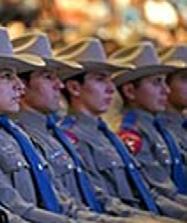


Example Postsecondary Opportunities
Apprenticeships
• Security Specialist
Associate Degrees
• Criminal Justice
• Law Enforcement
Bachelor’s Degrees
• Forensic Science
• Criminal Justice

Master’s, Doctoral, and Professional Degrees
• Criminal Justice
• Criminology and Criminal Justice
Additional Stackable IBCs/Licensures
• Jailer – Basic County Corrections
• Basic Telecommunicator
Example Aligned Occupations
(Based on statewide employment data)

Police and Sheriff’s Patrol Officers
Median Wage: $64,373
Annual Openings: 5,424
10-Year Growth: 13%
Detectives and Criminal Investigators
Median Wage: $82,090
Annual Openings: 1,536
10-Year Growth: 8%
First-Line Supervisors of Police and Detectives
Median Wage: $97,571
Annual Openings: 5,461
10-Year Growth: 12%

For more information visit: https://tea.texas.gov/academics/college-career-and-militaryprep/career-and-technical-education/programs-of-studyadditional-resources
Law Enforcement Course Descriptions:
Principles of Law, Public Safety, Corrections, and Security- LAW1000 (1 Credit)
Level: 1
Prerequisite: None

Course Fee: None
GPA Weight: Regular
Principles of Law, Public Safety, Corrections, and Security introduces students to professions in law enforcement, protective services, corrections, firefighting, and emergency management services. Students will examine the roles and responsibilities of police, courts, corrections, private security, and protective agencies of fire and emergency services. The course provides students with an overview of the skills necessary for careers in law enforcement, fire service, protective services, and corrections.
Law Enforcement I- Law2000 (1 Credit)
Level: 2
Prerequisite: None
Course Fee: None
GPA Weight: Regular
Law Enforcement I is an overview of the history, organization, and functions of local, state, and federal law enforcement. Students will understand the role of constitutional law at local, state, and federal levels; the U.S. legal system; criminal law; and law enforcement terminology and the classification and elements of crime.
Law Enforcement II- Law3100 (1 Credit)
Level: 3
Prerequisite: None
Course Fee: None
GPA Weight: Regular
Law Enforcement II provides the knowledge and skills necessary to prepare for a career in law enforcement. Students will understand ethical and legal responsibilities, patrol procedures, first responder roles, telecommunications, emergency equipment operations, and courtroom testimony.
Course taught exclusively at the Tomball Innovation Center


Criminal Investigation- LAW3200 (1 Credit)
Level: 3
Prerequisite: None
Course Fee: None
GPA Weight: Regular
Criminal Investigation is a course that introduces students to the profession of criminal investigations. Students will understand basic functions of criminal investigations and procedures and will learn how to investigate or follow up during investigations. Students will learn terminology and investigative procedures related to criminal investigation, crime scene processing, evidence collection, fingerprinting, and courtroom presentation. Through case studies and simulated crime scenes, students will collect and analyze evidence such as fingerprint analysis, bodily fluids, hairs, fibers, shoe and tire impressions, bite marks, drugs, tool marks, firearms and ammunition, blood spatter, digital evidence, and other types of evidence.
Course taught exclusively at the Tomball Innovation Center
Forensic Science- SCI6600 (1 Credit)
Level: 4
Course Fee: $15
Prerequisite: Biology and Chemistry (IPC or Physics) GPA Weight: Regular
Forensic Science is a course that introduces students to the application of science to connect a violation of law to a specific criminal, criminal act, or behavior and victim. Students will learn terminology and procedures related to the search and examination of physical evidence in criminal cases as they are performed in a typical crime laboratory. Using scientific methods, students will collect and analyze evidence such as fingerprints, bodily fluids, hairs, fibers, paint, glass, and cartridge cases. Students will also learn the history and the legal aspects as they relate to each discipline of forensic science and understand that scientific methods of investigation can be experimental, descriptive, or comparative. Note: This course satisfies a science credit requirement for students on the Foundation High School Program.
Practicum in Law Enforcement - LAW4000 (2 Credits)
Level: 4
Prerequisite: 2 credits in the Program of Study
Course Fee: None
GPA Weight: Regular
The practicum course is designed to give students supervised practical application of previously studied knowledge and skills in law, public safety, corrections, and security. Practicum experiences can occur in a variety of locations appropriate to the nature and level of experience. Students are encouraged to participate in extended learning experiences such as career and technical student organizations and other leadership or extracurricular organizations.
Course taught exclusively at the Tomball Innovation Center

For more information visit: https://tea.texas.gov/academics/college-career-and-militaryprep/career-and-technical-education/programs-of-study-
Legal Studies
The Legal Studies program of study focuses on topics such as legal research, legal writing, rules of procedure, case management, law office technology, and legal ethics. Areas of the legal system studied include aspects of family law, criminal law, and contract law.
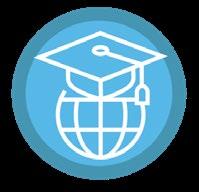
Courses for High School Credit
Level 1
Level 2
Level 3
Level 4

• Principles of Law, Public Safety, Corrections, and Security
• Court Systems and Practices
• Business Law
• Advanced Legal Skills and Professions
• Legal Research and Writing
• Forensic Science
• Practicum in Legal Studies
Aligned Industry-Based Certifications
• General Management
• Administrative Assisting
Work-Based Learning and Expanded Learning Opportunities
• Shadow a clerk in a courthouse to learn about civil litigation
Work-Based Learning Activities
Expanded Learning Opportunities
• Intern at a law firm, working alongside a paralegal to produce and organize legal documents
• Work part-time as an administrative assistant at a local non-profit that provides legal aid
• Participate in Mock Trial





Example Postsecondary Opportunities
Apprenticeships
• Law Apprenticeship
Associate Degrees
• Paralegal Studies

• Court Reporting and Captioning
Bachelor’s Degrees
• Legal Research
• Legal Studies
Master’s, Doctoral, and Professional Degrees
• Juris Doctorate
• International and Comparative Law
Additional Stackable IBCs/Licensures
• Paralegal
Example Aligned Occupations

(Based on statewide employment data)
Court Reporters
Median Wage: $51,177
Annual Openings: 174 10-Year Growth: 11%
Paralegals and Legal Assistants
Median Wage: $56,310
Annual Openings: 4,046 10-Year Growth: 23%
Lawyers
Median Wage: $134,158
Annual Openings: 3,915 10-Year Growth: 19%

For
Legal Studies Course Descriptions:
Principles of Law, Public Safety, Corrections, and Security- LAW1000 (1 Credit)
Level: 1
Prerequisite: None

Course Fee: None
GPA Weight: Regular
Principles of Law, Public Safety, Corrections, and Security introduces students to professions in law enforcement, protective services, corrections, firefighting, and emergency management services. Students will examine the roles and responsibilities of police, courts, corrections, private security, and protective agencies of fire and emergency services. The course provides students with an overview of the skills necessary for careers in law enforcement, fire service, protective services, and corrections.
Court Systems and Practices- LEG2000 (1 Credit)
Level: 2
Prerequisite: None
Course Fee: None
GPA Weight: Regular
Court Systems and Practices is an overview of the federal and state court systems. The course identifies the roles of judicial officers and the trial processes from pretrial to sentencing and examines the types and rules of evidence. Emphasis is placed on constitutional laws for criminal procedures such as search and seizure, stop and frisk, and interrogation.
Business Law- BUS1100 (1 Credit)
Level: 2
Prerequisite: None
Course Fee: None
GPA Weight: Regular or Advanced
Business Law is designed for students to analyze various aspects of the legal environment, including ethics, the judicial system, contracts, personal property, sales, negotiable instruments, agency and employment, business organization, risk management, and real property.
Available for Dual Credit from Lone Star College (BUSI2301)


Successful completion of the Legal Studies program of study will fulfill requirements of the Public Services endorsement.
Advanced Legal Skills and Professions
Level: 3
Prerequisite: None
- LEG3100 (1 Credit)
Course Fee: None
GPA Weight: Regular
Legal Research and Writing provides an introduction into the study and practice of legal writing and research. This course is designed to introduce students to the methods and tools used to conduct legal research, develop and frame legal arguments, produce legal writings such as briefs, memorandums, and other legal documents, study U.S. Constitutional law, and prepare for appellate argument(s).
Course taught exclusively at the Tomball Innovation Center
Legal Research and Writing- LEG3200 (1 Credit)
Level: 3
Prerequisite: None
Course Fee: None
GPA Weight: Regular
Legal Research and Writing provides an introduction into the study and practice of legal writing and research. This course is designed to introduce students to the methods and tools used to conduct legal research, develop and frame legal arguments, produce legal writings such as briefs, memorandums, and other legal documents, study U.S. Constitutional law, and prepare for appellate argument(s).
Course taught exclusively at the Tomball Innovation Center
Forensic
Level: 4
Science- SCI6600 (1 Credit)
Prerequisite: Biology and Chemistry (IPC or Physics)
Course Fee: $15
GPA Weight: Regular
Forensic Science is a course that introduces students to the application of science to connect a violation of law to a specific criminal, criminal act, or behavior and victim. Students will learn terminology and procedures related to the search and examination of physical evidence in criminal cases as they are performed in a typical crime laboratory. Using scientific methods, students will collect and analyze evidence such as fingerprints, bodily fluids, hairs, fibers, paint, glass, and cartridge cases. Students will also learn the history and the legal aspects as they relate to each discipline of forensic science and understand that scientific methods of investigation can be experimental, descriptive, or comparative. Note: This course satisfies a science credit requirement for students on the Foundation High School Program.
Practicum in Legal Studies- LEG4000 (2 Credits)
Level: 4
Prerequisite: 2 credits in the Program of Study
Course Fee: None
GPA Weight: Regular
The practicum course is designed to give students supervised practical application of previously studied knowledge and skills in law, public safety, corrections, and security. Practicum experiences can occur in a variety of locations appropriate to the nature and level of experience. Students are encouraged to participate in extended learning experiences such as career and technical student organizations and other leadership or extracurricular organizations.
Course taught exclusively at the Tomball Innovation Center

For more information visit: https://tea.texas.gov/academics/college-career-and-militaryprep/career-and-technical-education/programs-of-study-additionalresources

Marketing and Sales
The Marketing and Sales program of study focuses on occupational and educational opportunities associated with collecting information to estimate potential sales of a product or service and create campaigns to market or distribute goods and services. It includes applying data related to customer demographics, preferences, needs, and buying habits.
Courses for High School Credit
Level 1
Level 2
Level 3
Level 4
• Principles of Business, Marketing, and Finance
• Marketing
• Entrepreneurship
• Advertising
• Fashion Marketing
• Social Media Marketing
• Sports and Entertainment Marketing
• Statistics & Business Decision Making
• Practicum in Marketing
Aligned Industry-Based Certifications
• Entrepreneurship and Small Business
• Stukent Social Media Marketing Certification
Work-Based Learning and Expanded Learning Opportunities
• Intern at a marketing and advertising company



Example Postsecondary Opportunities
Associate Degrees
• Marketing/Marketing Management
• Retail Management
Bachelor’s Degrees
• Business Administration
• Marketing/Marketing Management
• Fashion Merchandising
Work-Based Learning Activities
Expanded Learning Opportunities
• Job shadow a pharmaceutical sales representative
• Intern at a local retail company
• Job shadow an account representative at a marketing firm
• Participate in BPA, DECA, FBLA, or related UIL events




Master’s, Doctoral, and Professional Degrees
• Business Administration
• Applied Economics
• Business Analytics
Additional Stackable IBCs/License
• Salesforce
• Service Contract Providers Example Aligned Occupations (Based on statewide employment data)

Retail Salespersons
Median Wage: $28, 356
Annual Openings: 56,132 10-Year Growth: 15%
Market Research Analysts
Median Wage: $60,926
Annual Openings: 5,688 10-Year Growth: 35%
Sales Managers
Median Wage: $123,729
Annual Openings: 3,368 10-Year Growth: 21%

For more information visit: https://tea.texas.gov/academics/college-careerand-military-prep/career-and-technicaleducation/programs-of-study-additional-resources
Marketing and Sales Course Descriptions:
Social Media Marketing - BUS0033 (.5 Credit)

Principles of Business, Marketing, & Finance- BUS0000 (1 Credit)
Level: 1
Prerequisite: None
Course Fee: None
GPA Weight: Regular
In Principles of Business, Marketing, and Finance, students gain knowledge and skills in economies and private enterprise systems, the impact of global business, the marketing of goods and services, advertising, and product pricing. Students analyze the sales process and financial management principles. This course allows students to reinforce, apply, and transfer academic knowledge and skills to a variety of interesting and relevant activities, problems, and settings in business, marketing, and finance.
Marketing- BUS3210 (1 Credit)
Level: 2
Prerequisite: None
Course Fee: None
GPA Weight: Regular
Marketing explores the seven core functions of marketing which include: marketing planning – why target market and industry affect businesses; marketing-information management – why market research is important; pricing – how prices maximize profit and affect the perceived value; product/service management – why products live and die; promotion – how to inform customers about products; channel management – how products reach the final user; and selling – how to convince a customer that a product is the best choice. Students will demonstrate knowledge in hands-on projects which may include conducting research, creating a promotional plan, pitching a sales presentation, and introducing an idea for a new product/service.
Entrepreneurship- BUS1220 (1 Credit)
Level: 2
Prerequisite: None
Course Fee: None
GPA Weight: Regular
Students will learn the principles necessary to begin and operate a business. The primary focus of the course is to help students understand the process of analyzing a business opportunity, preparing a business plan, determining feasibility of an idea using research, and developing a plan to organize and promote the business and its products and services.
Sports and Entertainment Marketing- BUS0028 (.5 Credit)
Level: 3
Prerequisite: None
Course Fee: None
GPA Weight: Regular
Sports and Entertainment Marketing will provide students with a thorough understanding of the marketing concepts and theories that apply to sports and entertainment. The areas this course will cover include basic marketing concepts, publicity, sponsorship, endorsements, licensing, branding, event marketing, promotions, and sports and entertainment marketing strategies.
Fashion Marketing- BUS0043 (.5 Credit)
Level: 3
Prerequisite: None
Course Fee: None
GPA Weight: Regular
Fashion Marketing is designed to provide students with knowledge of the various business functions in the fashion industry. Students in Fashion Marketing will gain a working knowledge of promotion, textiles, merchandising, mathematics, selling, visual merchandising, and career opportunities.
Level: 3
Prerequisite: None
Course Fee: None
GPA Weight: Regular
Social Media Marketing is designed to look at the rise of social media and how marketers are integrating social media tools in their overall marketing strategy. The course will investigate how the marketing community measures success in the new world of social media. Students will manage a successful social media presence for an organization, understand techniques for gaining customer and consumer buy-in to achieve marketing goals, and properly select social media platforms to engage consumers and monitor and measure the results of these efforts.
Advertising - BUS0123 (.5 Credit)
Level: 3
Prerequisite: None
Course Fee: None
GPA Weight: Regular
Advertising is designed as a comprehensive introduction to the principles and practices of advertising. Students will gain knowledge of techniques used in current advertising, including print, broadcast, and digital media. The course explores the social, cultural, ethical, and legal issues of advertising, historical influences, strategies, media decision processes as well as integrated marketing communications, and careers in advertising and sales promotion. The course provides an overview of how communication tools can be used to reach target audiences and increase consumer knowledge.
Statistics & Business Decision Making- BUS4200 (1 Credit)
Level: 4
Prerequisite: Algebra II
Course Fee: None
GPA Weight: Regular
Statistics and Business Decision Making is an introduction to statistics and the application of statistics to business decision making. Students will use statistics to make business decisions. Students will determine the appropriateness of methods used to collect data to ensure conclusions are valid. Note: This course satisfies a math credit requirement for students on the Foundation High School Program.
Practicum in Marketing- MKT4200 (2 Credits)
Level: 4
Prerequisite: 2 credits in the Program of Study
Course Fee: None
GPA Weight: Regular
Practicum in Marketing is a series of dynamic activities that focus on the customer to generate a profitable exchange. Students will gain knowledge and skills that help them to be proficient in one or more of the marketing functional areas associated with distribution, financing, marketing information management, pricing, product planning, promotion, purchasing, risk management, and selling skills. Students will integrate skills from academic subjects, information technology, interpersonal communication, and management training to make responsible decisions.

Successful completion of the Marketing and Sales program of study will fulfill requirements of the Business and Industry endorsement.
Nursing
The Nursing program of study focuses on occupational and educational opportunities associated with the nursing field. The program of study includes patient care techniques and other essential skills required in nursing.

Courses for High School Credit
Level 1
Level 2
Level 3

Level 4
• Principles of Health Science
• Medical Terminology
• Anatomy and Physiology
• Health Science Theory
• Health Science Clinical
• Practicum in Nursing
Aligned Industry-Based
Certifications
• Certified EKG Technician
• Certified Clinical Medical Assistant
Work-Based Learning and Expanded Learning Opportunities
Work-Based Learning Activities
Expanded Learning Opportunities
• Intern with a medical assistant at a community clinic, hospital, assisted living, or long-term care facility
• Participate in job shadowing experiences at a local hospital/clinic
• Participate in Health Occupation Students of America (HOSA)



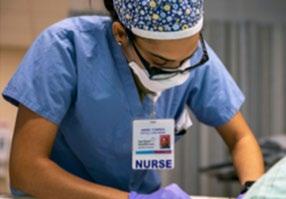


Example Postsecondary Opportunities
Apprenticeships
• Certified Nursing Assistant (CNA)
Associate Degrees
• Licensed Practical Nurse (LPN)
Bachelor’s Degrees
• Registered Nurse (RN)

Master’s, Doctoral, and Professional Degrees
• Advanced Practice Registered Nurse (APRN)
• Doctor of Nursing Practice (DNP)
Additional Stackable IBCs/License
• Certified Diabetes Educator
• Certified Flight Registered Nurse
• Wound Care Certified
Example Aligned Occupations (Based on statewide employment data)

Nursing Assistants
Median Wage: $35,110
Annual Openings: 13,501
10-Year Growth: 13%
Licensed Practical and Licensed Vocational Nurses
Median Wage: $57,007
Annual Openings: 5,831
10-Year Growth: 12%
Registered Nurses
Median Wage: $85,108
Annual Openings: 16,904
10-Year Growth: 14%

Principles of Health Science- HLT2000 (1 Credit)
Level: 1
Prerequisite: None

Nursing Course Descriptions:
Course Fee: $15
GPA Weight: Regular
The Principles of Health Science course is designed to provide an overview of the therapeutic, diagnostic, health informatics, support services, and biotechnology research and development systems of the healthcare industry.
Medical Terminology- HLT1000MT (1 Credit)
Level: 2
Prerequisite: None
Course Fee: None
GPA Weight: Regular
The Medical Terminology course is designed to introduce students to the structure of medical terms, including prefixes, suffixes, word roots, singular and plural forms, and medical abbreviations. The course allows students to achieve comprehension of medical vocabulary appropriate to medical procedures, human anatomy and physiology, and pathophysiology.
Health Science Theory- HLT3100 (1 Credit)
Level: 3
Prerequisite: Biology and 1 Additional Health Science Course
Course Fee: $15 + Uniform
GPA Weight: Regular
The Health Science Theory course is designed to provide for the development of advanced knowledge and skills related to a wide variety of health careers. Students will employ hands-on experiences for continued knowledge and skill development.


Successful completion of the Nursing program of study will fulfill requirements of the Public Services endorsement.

Health Science Clinicals- HLT2110 (2 Credits)
Level: 3
Prerequisite: Biology and 1
Additional Health Science Course
Course Fee: $100 + Uniform
GPA Weight: Regular
The Health Science Clinical course is designed to provide for the development of advanced knowledge and skills related to a wide variety of health careers. Students will employ hands-on experiences for continued knowledge and skill development. Districts are encouraged to offer this course in a consecutive block with Health Science Theory to allow students sufficient time to master the content of both courses.
Anatomy and Physiology- SCI4240(D) (1 Credit)
Level: 3
Prerequisite: Biology and Chemistry, IPC, or Physics
Course Fee: $15
GPA Weight: Regular or Advanced
The Anatomy and Physiology course is designed for students to conduct laboratory and field investigations, use scientific methods during investigations, and make informed decisions using critical thinking and scientific problem solving. Students in Anatomy and Physiology will study a variety of topics, including the structure and function of the human body and the interaction of body systems for maintaining homeostasis. Note: This course satisfies a science credit requirement for students on the Foundation High School Program.
Available for Dual Credit from Lone Star College (BIOL2401, 2)
Practicum in Nursing- HLT3520 (2 Credits)
Level: 4
Prerequisite: Health Science Theory/Clinicals, Biology, and 1 Additional Health Science Course
Course Fee: $100 + Uniform
GPA Weight: Regular
Practicum in Nursing is designed to give students practical applications of previously studied knowledge and skills. Practicum experiences can occur in a variety of locations appropriate to the nature and level of the experience.

For more information visit: https://tea.texas.gov/academics/college-career-and-militaryprep/career-and-technical-education/programs-of-studyadditional-resources
Pharmacy
The Pharmacy program of study focuses on occupational and educational opportunities associated with the nursing field. The program of study includes patient care techniques and other essential skills required in nursing.

Courses for High School Credit
Level 1
Level 2
Level 3
Level 4

• Principles of Health Science
• Medical Terminology
• Anatomy and Physiology
• Health Science Theory
• Health Science Clinical
• Practicum in Health SciencePharmacy
Aligned Industry-Based Certifications
• Certified EKG Technician
• Pharmacy Technician
Work-Based Learning and Expanded Learning Opportunities
Work-Based Learning Activities
Expanded Learning Opportunities
• Intern with a retail or hospital pharmacy
• Participate in job shadowing experiences
• Participate in Health Occupation Students of America (HOSA) or SkillsUSA



Example Postsecondary Opportunities
Apprenticeships
• Level II Pharmacy Technician
• Level III Pharmacy Technician
Associate Degrees
• Pharmacy Management (AAS)
Bachelor’s Degrees
• Bachelor of Pharmacy (BPharm)

Master’s, Doctoral, and Professional Degrees
• Master of Pharmacy (MPharm)
• Doctor of Pharmacy (PharmD)
Additional Stackable IBCs/License
• Psychiatric Pharmacy (BCPP)
Example Aligned Occupations
(Based on statewide employment data)

Pharmacy Aide
Median Wage: $36,135
Annual Openings: 541 10-Year Growth: 11%
Pharmacy Technician
Median Wage: $41,987
Annual Openings: 4,255 10-Year Growth: 20%
Pharmacist
Median Wage: $134,883
Annual Openings: 1,312 10-Year Growth: 16%

Pharmacy Course Descriptions:
Principles of Health Science- HLT2000 (1 Credit)
Level: 1
Prerequisite: None

Course Fee: $15
GPA Weight: Regular
The Principles of Health Science course is designed to provide an overview of the therapeutic, diagnostic, health informatics, support services, and biotechnology research and development systems of the healthcare industry.
Medical Terminology- HLT1000MT (1 Credit)
Level: 2
Prerequisite: None
Course Fee: None
GPA Weight: Regular
The Medical Terminology course is designed to introduce students to the structure of medical terms, including prefixes, suffixes, word roots, singular and plural forms, and medical abbreviations. The course allows students to achieve comprehension of medical vocabulary appropriate to medical procedures, human anatomy and physiology, and pathophysiology.
Health Science Theory- HLT3100 (1 Credit)
Level: 3
Prerequisite: Biology and 1 Additional Health Science Course
Course Fee: $15 + Uniform
GPA Weight: Regular
The Health Science Theory course is designed to provide for the development of advanced knowledge and skills related to a wide variety of health careers. Students will employ hands-on experiences for continued knowledge and skill development.
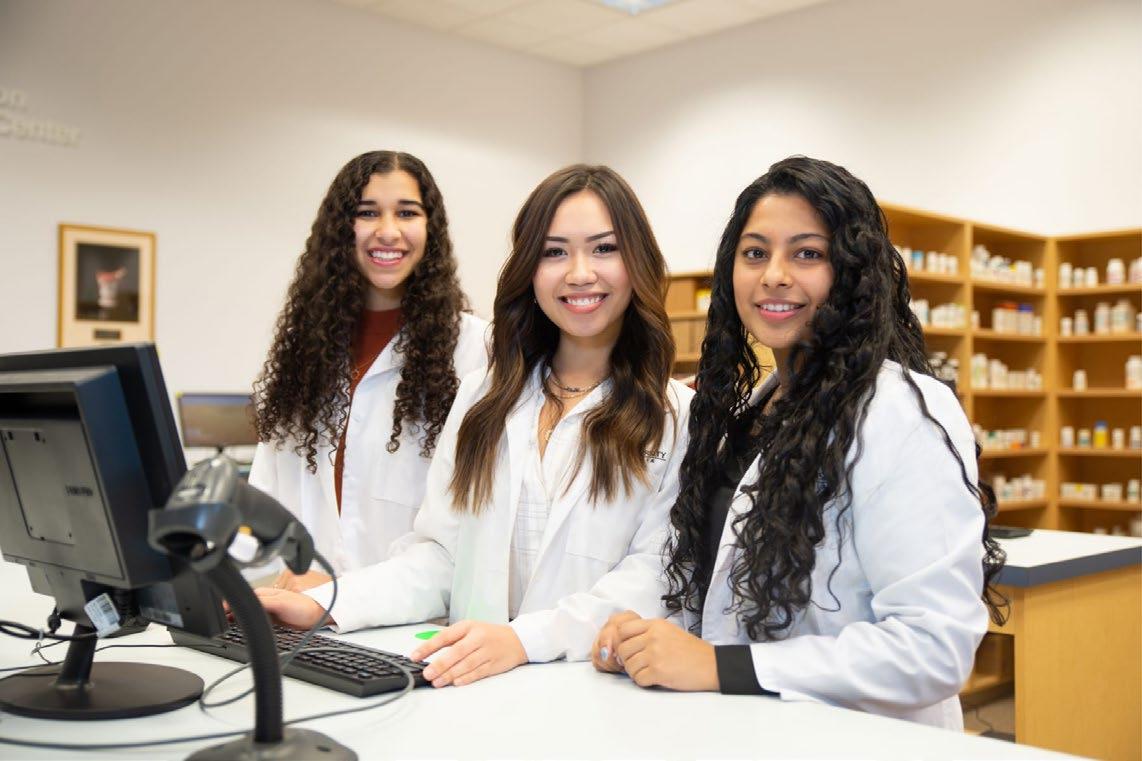

Successful completion of the Pharmacy program of study will fulfill requirements of the Public Services endorsement.

Health Science Clinicals- HLT2110 (2 Credits)
Level: 3
Prerequisite: Biology and 1 Additional Health Science Course
Course Fee: $100 + Uniform
GPA Weight: Regular
The Health Science Clinical course is designed to provide for the development of advanced knowledge and skills related to a wide variety of health careers. Students will employ hands-on experiences for continued knowledge and skill development. Districts are encouraged to offer this course in a consecutive block with Health Science Theory to allow students sufficient time to master the content of both courses.
Anatomy and Physiology- SCI4240(D) (1 Credit)
Level: 3
Prerequisite: Biology and Chemistry, IPC, or Physics
Course Fee: $15
GPA Weight: Regular or Advanced
The Anatomy and Physiology course is designed for students to conduct laboratory and field investigations, use scientific methods during investigations, and make informed decisions using critical thinking and scientific problem solving. Students in Anatomy and Physiology will study a variety of topics, including the structure and function of the human body and the interaction of body systems for maintaining homeostasis. Note: This course satisfies a science credit requirement for students on the Foundation High School Program.
Available for Dual Credit from Lone Star College (BIOL2401, 2)
Practicum in Pharmacy- HLT3420 (2 Credits)
Level: 4
Prerequisite: Health Science Theory/Clinicals, Biology, and 1 Additional Health Science Course
Course Fee: $65 + Uniform + Individual Licensing Fees
GPA Weight: Regular
The Practicum in Pharmacy course is designed to give students practical application of previously studied knowledge and skills. Practicum experiences can occur in a variety of locations appropriate to the nature and level of the experience.
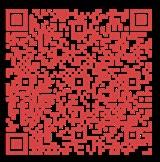
For more information visit: https://tea.texas.gov/academics/college-career-and-militaryprep/career-and-technical-education/programs-of-studyadditional-resources


Level 1
Level 2
Plant and Floral Science
The Plant & Floral Science program of study focuses on occupational and educational opportunities associated with the science, research, and business of plants and other living organisms. This program of study includes the application of biology and life science to real-world life processes of plants and vegetation, either in laboratories or in the field.
Courses for High School Credit
• Principles of Agriculture, Food, and Natural Resources
• Floral Design
• Greenhouse Operation and Production
• Entrepreneurship
Level 3
Level 4
• Horticultural Science
• Advanced Floral Design
• Advanced Plant and Soil Science
• Practicum in Plant & Floral Science
Aligned Industry-Based Certifications
• BASF Plant Science Certification
• Texas State Florists’ Association Level II Floral Certification
Work-Based
Learning and Expanded Learning Opportunities
• Work in a part-time job at a landscaping company to learn about production and management of plants.


Work-Based Learning Activities
Expanded Learning Opportunities
• Intern at an agricultural research company, working alongside a biological technician to learn about application of biology to plant production
• Participate in an FFA career, leadership, and speaking contest like an agriscience fair
• Participate in an industry-related competition like an agriscience fair


Example Postsecondary Opportunities Apprenticeships
• Horticulturist
Associate Degrees
• Biology/Biological Sciences

• Biological and Physical Sciences
Bachelor’s Degrees
• Horticulture
• Plant Pathology/Phytopathology
Master’s, Doctoral, and Professional Degrees
• Plant Breeding
• Botany/Plant Biology
Additional Stackable IBCs/License
• Nursery Floral License
• Horticulturist Certification
Example Aligned Occupations
(Based on statewide employment data)
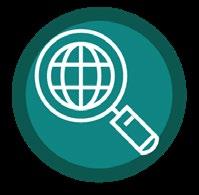

Pesticide Handlers, Sprayers, and Applicators, Vegetation
Median Wage: $46,153
Annual Openings: 205
10-Year Growth: 17%
Biological Technicians
Median Wage: $45,787
Annual Openings: 879
10-Year Growth: 14%
Farmers, Ranchers, and Other Agricultural Managers
Median Wage: $65,490
Annual Openings: 28,020
10-Year Growth: 4%

For more information visit: https://tea.texas.gov/academics/college-career-and-militaryprep/career-and-technical-education/programs-of-study-additionalresources
Plant and Floral Science Course Descriptions:
Principles of Agriculture, Food, and Nat. Resources- AGR0000 (1 Credit)
Level: 1
Prerequisites: None

Course Fee: None
GPA Weight: Regular
Principles of Agriculture, Food, and Natural Resources will allow students to develop knowledge and skills regarding career and educational opportunities, personal development, globalization, industry standards, details, practices, and expectations.
Greenhouse Operation and Production- AGR2820 (1 credit)
Level: 2
Prerequisites: None
Course Fee: $25
GPA Weight: Regular
Greenhouse Operation and Production is designed to develop an understanding of greenhouse production techniques and practices. To prepare for careers in horticultural systems, students must attain academic skills and knowledge, acquire technical knowledge and skills related to horticultural systems and the workplace, and develop knowledge and skills regarding career opportunities, entry requirements, and industry expectations.
Floral Design- AGR1320 (1 credit)
Level: 2
Prerequisites: None
Course Fee: $50
GPA Weight: Regular
Floral Design is designed to develop students' ability to identify and demonstrate the principles and techniques related to floral design as well as develop an understanding of the management of floral enterprises. Through the analysis of artistic floral styles and historical periods, students will develop respect for the traditions and contributions of diverse cultures. Students will respond to and analyze floral designs, thus contributing to the development of lifelong skills of making informed judgments and evaluations.
Note: This course satisfies a fine arts credit requirement for students on the Foundation High School Program.
Entrepreneurship- BUS1220 (1 credit)
Level: 2
Prerequisites: None
Course Fee: None
GPA Weight: Regular
Students will learn the principles necessary to begin and operate a business. The primary focus of the course is to help students understand the process of analyzing a business opportunity, preparing a business plan, determining feasibility of an idea using research, and developing a plan to organize and promote the business and its products and services.

Successful completion of the Plant & Floral Science program of study will fulfill requirements of the Business and Industry endorsement.
Horticultural Science- AGR1310 (1 credit)
Level: 3
Course Fee: None
Prerequisites: At least 1 additional course in Program of Study GPA Weight: Regular
Horticultural Science is designed to develop an understanding of common horticultural management practices as they relate to food and ornamental plant production. To prepare for careers in horticultural systems, students must attain academic skills and knowledge, acquire technical knowledge and skills related to horticulture and the workplace, and develop knowledge and skills regarding career opportunities, entry requirements, and industry expectations.
Advanced Floral Design- AGR2310 (1 credit)
Level: 3
Course Fee: $50
Prerequisites: Floral Design GPA Weight: Regular
In this course, students build on the knowledge from the Floral Design course and are introduced to more advanced floral design concepts, with an emphasis on specialty designs and specific occasion planning. This course focuses on building skills in advanced floral design and providing students with a thorough understanding of the design elements and planning techniques used to produce unique specialty floral designs that support the goals and objectives of a specific occasion or event. Through the analysis and evaluation of various occasion and event types, students explore the design needs and expectations of clients and propose and evaluate appropriate creations. From conception to evaluation, students are challenged to create and design appropriate specialty floral designs that meet the needs of the client. Furthermore, an emphasis on budgetary adherence and entrepreneurship equips students with many of the necessary skills needed for success in floral enterprises.
Advanced Plant & Soil Science- AGR4400 (1 credit)
Level: 4
Course Fee: None
Prerequisites: None GPA Weight: Regular
Advanced Plant and Soil Science provides a way of learning about the natural world. Students should know how plant and soil science has influenced a vast body of knowledge, that there are still applications to be discovered, and that plant and soil science is the basis for many other fields of science. To prepare for careers in plant and soil science, students must attain academic skills and knowledge, acquire technical knowledge and skills related to plant and soil science and the workplace.
Note: This course satisfies a science credit requirement for students on the Foundation High School Program
Practicum in Plant & Floral Science- AGR4500 (2 credits)
Level: 4
Prerequisites: 2 credits in the Program of Study
Course Fee: None
GPA Weight: Regular
This practicum course includes a paid or unpaid capstone experience for students participating in a coherent sequence of career and technical education courses in the Agriculture, Food, and Natural Resources Career Cluster.
Plant
P-TECH Healthcare (Offered at Tomball Star Academy)
The P-TECH Healthcare program of study enables students to pursue a career in the medical industry through a rigorous and supportive learning environment that blends high school with the first two years of college. Through an innovative partnership with Lone Star College- Tomball and HCA Houston Healthcare- Tomball, students will apply their medical coursework with hands-on work experiences, making them top candidates whether they choose to continue their postsecondary education or begin their careers upon graduation.

Courses for High School Credit
Level 1
Level 2
Level 3
Level 4

• Principles of Health Science
• Medical Terminology
• Health Science Clinical
• Anatomy and Physiology
• Practicum in Nursing
LSC Health Science Courses for College Credit
HPRS 1206 Essentials of Medical Terminology
HPRS 2321 Medical Law & Ethics- Health Professions
ECRD 1211 Electrocardiography
PLAB1223 PLAB1160 Phlebotomy Lab Phlebotomy Clinical
NURA1401 Nurse Aide for Healthcare
Aligned Industry-Based Certifications
• Certified EKG Technician
• Certified Nurse Aide (CNA)
• Patient Care Technician
• Phlebotomy Technician
Work-Based Learning and Expanded Learning Opportunities
Work-Based Learning Activities
Expanded Learning Opportunities

• Develop clinical and patient care skills in state-of-the-art simulation labs at the Lone Star College- Tomball Health Science Building
• Participate in job shadowing and internship experiences at HCA Houston Healthcare- Tomball Hospital
• Participate in Health Occupation Students of America (HOSA)
Successful completion of the P-Tech Healthcare program of study will fulfill requirements of the Public Services endorsement.

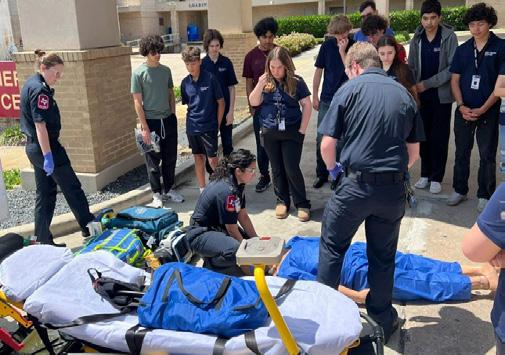
Example Postsecondary Opportunities
Bachelor’s Degrees
• Registered Nurse (RN)
• Respiratory Therapist (BSRC)

Master’s, Doctoral, and Professional Degrees
• Advanced Practice Registered Nurse (APRN)
• Doctor of Nursing Practice (DNP)
Additional Stackable IBCs/License
• Certified Diabetes Educator
• Certified Flight Registered Nurse
• Wound Care Certified
Example Aligned Occupations (Based on statewide employment data)

Registered Nurses
Median Wage: $85,108
Annual Openings: 16,904
10-Year Growth: 1%
Nurse Practitioners
Median Wage: $126,579
Annual Openings: 2,241
10-Year Growth: 5%
Nurse Anesthetists
Median Wage: $196,539
Annual Openings: 189
10-Year Growth: 2%

For more information visit: https://tea.texas.gov/academics/college-career-and-militaryprep/career-and-technical-education/programs-of-studyadditional-resources
P-TECH Healthcare Course Descriptions:
(Offered at Tomball Star Academy)

Principles of Health Science- HLT2000 (1 Credit)
Level: 1
Prerequisite: None
Course Fee: $15
GPA Weight: Regular
The Principles of Health Science course is designed to provide an overview of the therapeutic, diagnostic, health informatics, support services, and biotechnology research and development systems of the healthcare industry.
Medical Terminology- HLT1000MT (1 Credit)
Level: 2
Prerequisite: None
Course Fee: None
GPA Weight: Regular
The Medical Terminology course is designed to introduce students to the structure of medical terms, including prefixes, suffixes, word roots, singular and plural forms, and medical abbreviations. The course allows students to achieve comprehension of medical vocabulary appropriate to medical procedures, human anatomy and physiology, and pathophysiology.
Health Science Clinicals- HLT2110 (2 Credits)
Level: 3
Prerequisite: Biology and 1
Additional Health Science Course
Course Fee: $100 + Uniform
GPA Weight: Regular
The Health Science Clinical course is designed to provide for the development of advanced knowledge and skills related to a wide variety of health careers. Students will employ hands-on experiences for continued knowledge and skill development.
Human Anatomy and Physiology- BIOL2401,2 (4 Credit Hours)
Prerequisites: College level readiness in Reading, Writing and Math
A study of the structure and function of the human body. Emphasis will be given to the study of cells and tissues and anatomical and physiological interrelationships of the integumentary, skeletal, muscular, and nervous systems. Designed primarily for students entering health careers.
Practicum in Nursing- HLT3520 (2 Credits)
Level: 4
Prerequisite: Health Science Theory/Clinicals, Biology, and 1 Additional Health Science Course
Course Fee: $100 + Uniform
GPA Weight: Regular
Practicum in Nursing is designed to give students practical applications of previously studied knowledge and skills. Practicum experiences can occur in a variety of locations appropriate to the nature and level of the experience.

Successful completion of the P-Tech Healthcare program of study will fulfill requirements of the Public Services endorsement.
Essentials of Medical Terminology- HPRS1206 (2 Hours)
Prerequisite: None
Medical terminology related to sterile processing is unique. The course introduces the student to a broad range of terms related to health care with a focus on sterile processing.
Medical Law & Ethics- HPRS2321 (3 Hours)
Prerequisites: College level readiness in Reading AND Writing Principles, procedures, and regulations governing the legal and ethical relationships among physicians, patients, and health care professionals. Includes current ethical issues related to the various healthcare professions and patient confidentiality.
Electrocardiography- ECRD1211 (2 Hours)
Prerequisite: None
Fundamentals of cardiovascular anatomy and physiology. Includes basic electrocardiography procedures, interpretation of basic dysrhythmias, and appropriate treatment modalities. Additional topics may include spirometry and CPR/AED and first aid training.
Phlebotomy Lab- PLAB1223 (2 Hours)
Corequisite: PLAB1160
Skill development in the performance of a variety of blood collection methods using proper techniques and standard precautions. Includes vacuum collection devices, syringes, capillary skin puncture, butterfly needles and blood culture, and specimen collection on adults, children, and infants. Emphasis on infection prevention, patient identification, specimen labeling, quality assurance, specimen handling, processing, accessioning, professionalism, ethics, and medical terminology.
Phlebotomy Clinicals- PLAB1160 (1 Hour)
Corequisite: PLAB1223
A health-related work-based learning experience that enables the student to apply specialized occupational theory, skills, and concepts. Direct supervision is provided by the clinical professional.
Nurse Aide for Healthcare- NURA1401 (4 Hours)
Prerequisites: Successful completion of all other healthcare courses.
Knowledge, skills, and abilities essential to provide basic care to residents of long-term care facilities. Topics include resident’s rights, communication, safety, observation, reporting and assisting residents in maintaining basic comfort and safety. Emphasis on effective interaction with members of the healthcare team, restorative services, mental health, and social services needs.


Robotics
The Robotics program of study focuses on the occupational and educational opportunities associated with operating or designing an unmanned aircraft using a ground-based controller. This program of study includes understanding and designing systems of communications between the controller and the aircraft to ensure compliance with federal aviation safety regulations.
Courses for High School Credit
Level 1
Level 2
Level 3
Level 4
• Robotics I
• Robotics II
• Engineering Science
• Digital Electronics
Aligned Industry-Based Certification
• FAA Part 107 Remote Drone Pilot
Work-Based Learning and Expanded Learning Opportunities
Work-Based Learning Activities
Expanded Learning Opportunities
• Intern with a public service, engineering, construction, or transportation firm
• Practice drone operations with an industry professional at a work site
• Participate in an aerial drone competition


Example Postsecondary Opportunities
Associate Degrees
• Airline/Commercial/Professional Pilot and Flight Crew
• Manufacturing Engineering Technology/Technician
Bachelor’s Degrees
• Aviation Science
• Aeronautical/Aerospace Engineering Technology
Master’s, Doctoral, and Professional Degrees
• Aerospace, Aeronautical, and Astronautical/Space Engineering, General Additional Stackable IBCs/License
• Aerial Mapping and 3D Modeling Certification
Example Aligned
Occupations
(Based on statewide employment data)

Aerospace Engineering and Operations Technicians
Median Wage: $48,204
Annual Openings: 192
10-Year Growth: 21%
Avionics Technicians
Median Wage: $72,461
Annual Openings: 255
10-Year Growth: 16%



Robotics I- ROB1000 (1 Credit)
Level: 1
Prerequisite: None

Robotics Course Descriptions:
Engineering Science- STE0220H (1 Credit)
Level: 3
Course Fee: None
GPA Weight: Regular
In Robotics I, students will transfer academic skills to component designs in a project- based environment through implementation of the design process. Students will build prototypes or use simulation software to test their designs. Additionally, students will explore career opportunities, employer expectations, and educational needs in the robotic and automation industry.

Robotics II- ROB2000 (1 Credit)
Level: 2
Prerequisite: Robotics I
Course Fee: None
GPA Weight: Regular
In Robotics II, students will explore artificial intelligence and programming in the robotic and automation industry. Through implementation of the design process, students will transfer academic skills to component designs in a project-based environment. Students will build prototypes and use software to test their designs. Note: This course satisfies a math credit requirement for students on the Foundation High School Program.


Prerequisite: Algebra I and Biology and 1 credit from the Program of Study
Course Fee: None
GPA Weight: Advanced
Engineering Science is an engineering course designed to expose students to some of the major concepts and technologies that they will encounter in a postsecondary program of study in any engineering domain. Students will have an opportunity to investigate engineering and high-tech careers. In Engineering Science, students will employ science, technology, engineering, and mathematical concepts in the solution of real-world challenge situations. Students will develop problem-solving skills and apply their knowledge of research and design to create solutions to various challenges. Students will also learn how to document their work and communicate their solutions to their peers and members of the professional community.
Note: This course satisfies a science credit requirement for students on the Foundation High School Program.

Electronics- STE3000H (1 Credit)
Level: 4
Prerequisite: Algebra I and Geometry
Course Fee: None
GPA Weight: Advanced
Digital Electronics is the study of electronic circuits that are used to process and control digital signals. In contrast to analog electronics, where information is represented by a continuously varying voltage, digital signals are represented by two discreet voltages or logic levels. This distinction allows for greater signal speed and storage capabilities and has revolutionized the world of electronics. Digital electronics is the foundation of modern electronic devices such as cellular phones, digital audio players, laptop computers, digital cameras, and high-definition televisions. The primary focus of Digital Electronics is to expose students to the design process of combinational and sequential logic design, teamwork, communication methods, engineering standards, and technical documentation.
Note: This course satisfies a math credit requirement for students on the Foundation High School Program.

Digital
Teaching and Training
The Teaching and Training program of study focuses on occupational and educational opportunities associated with careers related to teaching, instructing, and creating instructional and enrichment materials. The program of study includes recognizing a variety of student groups and their corresponding needs, identifying processes for developing curriculum and coordinating educational content, and coaching groups and individuals.

Courses for High School Credit
Level 1
Level 2
Level 3
Level 4

• Principles of Education and Training
• Human Growth and Development
• Instructional Practices
• Practicum in Teaching and Training
Aligned Industry-Based Certification
• Educational Aide I
Work-Based Learning
and Expanded Learning
Opportunities
Work-Based Learning Activities
Expanded Learning Opportunities
• Serve as a camp counselor to learn mentoring, facilitation, and lesson planning skills
• Volunteer in a tutoring center to learn lesson planning and skills assessment
• Participate in FCCLA
• Participate in TAFE


Example Postsecondary Opportunities
Apprenticeships
• Teacher Apprentice
Associate Degrees

• Adult and Continuing Education and Teaching
• Educational/Instructional Technology
Bachelor’s Degrees
• Elementary Education and Teaching
• Secondary Education and Teaching
Master’s, Doctoral, and Professional Degrees
• Educational Leadership and Administration, General
• Curriculum and Instruction
Additional Stackable IBCs/License
• Generalist, Grades EC-4
Example Aligned Occupations
(Based on statewide employment data)

Teaching Assistants, Except Postsecondary Median Wage: $28,066
Annual Openings: 10,000
10-Year Growth: 15%
Secondary School Teachers, Except Special Education and CTE Median Wage: $61,035
Annual Openings: 8,288
10-Year Growth: 14%
Education Administrators, Kindergarten through Secondary Median Wage: $81,976
Annual Openings: 2,676
10-Year Growth: 14%

For more information visit: https://tea.texas.gov/academics/college-career-and-militaryprep/career-and-technical-education/programs-of-studyadditional-resources
Teaching and Training Course Descriptions:
Principles of Education & Training- TCH0120 (1 Credit)
Level: 1
Prerequisites: None

Course Fee: None
GPA Weight: Regular
Principles of Education and Training is designed to introduce learners to the various careers available within the Education and Training Career Cluster. Students use self- knowledge as well as educational and career information to analyze various careers within the Education and Training Career Cluster. Students will develop a graduation plan that leads to a specific career choice in the student's interest area.

Human Growth & Development- TCH0220 (1 Credit)
Level: 2
Prerequisites: None
Course Fee: None
GPA Weight: Regular
Human Growth and Development is an examination of human development across the lifespan with emphasis on research, theoretical perspectives, and common physical, cognitive, emotional, and social developmental milestones. The course covers material that is generally taught in a postsecondary, one-semester introductory course in developmental psychology or human development.
Instructional Practices- TCH1220 (2 Credits)
Level: 3
Prerequisites: One credit from the Program of Study
Course Fee: $20
GPA Weight: Regular
Instructional Practices is a field-based (practicum) internship that provides students with background knowledge of child and adolescent development as well as principles of effective teaching and training practices. Students work under the joint direction and supervision of both a teacher with knowledge of early childhood, middle childhood, and adolescence education and exemplary educators or trainers in direct instructional roles with elementary-, middle school-, and high school-aged students. Students learn to plan and direct individualized instruction and group activities, prepare instructional materials, develop materials for educational environments, assist with record keeping, and complete other responsibilities of teachers, trainers, paraprofessionals, or other educational personnel.

Successful completion of the Teaching and Training program of study will fulfill requirements of the Public Service endorsement.
Practicum in Teaching & Training- TCH2120 (2 Credits)
Level: 4
Prerequisites: Instructional Practices
Course Fee: $30
GPA Weight: Regular
Practicum in Education and Training is a field-based internship that provides students background knowledge of child and adolescent development principles as well as principles of effective teaching and training practices. Students in the course work under the joint direction and supervision of both a teacher with knowledge of early childhood, middle childhood, and adolescence education and exemplary educators in direct instructional roles with elementary-, middle school-, and high school-aged students. Students learn to plan and direct individualized instruction and group activities, prepare instructional materials, assist with record keeping, make physical arrangements, and complete other responsibilities of classroom teachers, trainers, paraprofessionals, or other educational personnel.


For more information visit: https://tea.texas.gov/academics/college-career-and-militaryprep/career-and-technical-education/programs-of-studyadditional-resources
Welding
The Welding Program of Study focuses on the development and use of automatic and computer-controlled machines, tools, and robots that perform work on metal or plastic. CTE learners will learn how to modify parts to make or repair machine tools or maintain individual machines and how to use hand-welding or flame-cutting equipment.

Courses for High School Credit
Level 1
Level 2
Level 3
Level 4

• Introduction to Welding
• Welding I
• Entrepreneurship
• Welding II
• Practicum in Welding
Aligned Industry-Based Certifications
• AWS D1.1 Structural Steel
• AWS D9.1 Sheet Metal Welding
• AWS SENSE Level 1: Entry Welder
Work-Based Learning
and Expanded Learning Opportunities
Work-Based Learning Activities
Expanded Learning Opportunities
• Job shadow a welder
• Intern for a local welding company
• Tour a welding shop
• Participate in SkillsUSA or TSA
• Participate in a welding project that benefits the community


Example Postsecondary Opportunities
Apprenticeships
• Welding
Associate Degrees
• Welding Technology

• Building/Construction Site Management
• Operations Management and Supervision
Bachelor’s Degrees
• Welding Technology
• Construction Management
• Project Management
• Building/Construction Site Management
Master’s, Doctoral, and Professional Degrees
• Engineering
• Engineering/Industrial Management
• Manufacturing Engineering
• Construction Engineering Successful
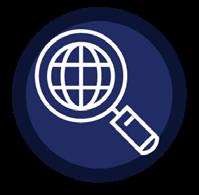
Example Aligned Occupations (Based on statewide employment data)
Welders, Cutters, Solderers, and Brazers
Median Wage: $48,177
Annual Openings: 6,792
10-Year Growth: 23%
First-Line Supervisors of Production and Operating Workers
Median Wage: $62,584
Annual Openings: 5,926
10-Year Growth: 17%
Industrial Production Managers
Median Wage: $119,691
Annual Openings: 1,296
10-Year Growth: 19%

Welding Course Descriptions:
Introduction to Welding- MFG1300 (1 Credit)
Level: 1
Prerequisites: None

Course Fee: $50
GPA Weight: Regular
Introduction to Welding will introduce welding technology with an emphasis on basic welding laboratory principles and operating procedures. Students will be introduced to the three basic welding processes. Topics include: industrial safety and health practices, hand tool and power machine use, measurement, laboratory operating procedures, welding power sources, welding career potentials, and introduction to welding codes and standards. Introduction to Welding will provide students with the knowledge, skills, and technologies required for employment in welding industries. This course supports integration of academic and technical knowledge and skills. Students will reinforce, apply, and transfer knowledge and skills to a variety of settings and problems. Knowledge about career opportunities, requirements, and expectations and the development of workplace skills will prepare students for future success.
Entrepreneurship- BUS1220 (1 credit)
Level: 2
Prerequisites: None
Course Fee: None
GPA Weight: Regular
Students will learn the principles necessary to begin and operate a business. The primary focus of the course is to help students understand the process of analyzing a business opportunity, preparing a business plan, determining feasibility of an idea using research, and developing a plan to organize and promote the business and its products and services.


Successful completion of the Welding program of study will fulfill requirements of the Business and Industry endorsement.

Welding I- MFG2200 (2 Credits)
Level: 2
Course Fee: $75
Prerequisites: None GPA Weight: Regular
Welding I provide the knowledge, skills, and technologies required for employment in metal technology systems. Students will develop knowledge and skills related to this system and apply them to personal career development. This course supports integration of academic and technical knowledge and skills. Students will reinforce, apply, and transfer knowledge and skills to a variety of settings and problems. Knowledge about career opportunities, requirements, and expectations and the development of workplace skills prepare students for future success.
Welding II- CMFG3200 (2 Credits)
Level: 3
Prerequisites: Welding I
Course Fee: $75
GPA Weight: Regular
Welding II builds on the knowledge and skills developed in Welding I. Students will develop advanced welding concepts and skills as related to personal and career development. Students will integrate academic and technical knowledge and skills. Students will have opportunities to reinforce, apply, and transfer knowledge and skills to a variety of settings and problems.
Practicum in Welding- MFG4300 (2 Credits)
Level: 4
Prerequisites: Two credits from the Program of Study
Course Fee: $75
GPA Weight: Regular
The Practicum in Welding course is designed to give students supervised practical application of previously studied knowledge and skills. Practicum experiences can occur in a variety of locations appropriate to the nature and level of experience.

For more information visit: https://tea.texas.gov/academics/college-career-and-militaryprep/career-and-technical-education/programs-of-study-additionalresources

CTE PROGRAMS OF STUDY:
BUILDING SKILLS FOR TOMORROW’S COLLEGE, CAREER, MILITARY, AND WORKFORCE SUCCESS
To earn CCMR, graduates must meet at least one of the following 4 criteria:
Criteria
Description College
Qualifying Test Scores
Industry-Based Certificate (IBC)
* Earn Advanced Placement (AP) credit by passing the exam with a 3 or higher
* Successfully complete an English or Math dual credit course or complete a total of 9 dual credit hours (except PE)
* Earn an Associate's Degree
* Earn a Level I or a Level II Certificate
* Earn qualifying SAT, ACT, or TSIA2 Scores
* Earn an IBC in an aligned CTE Program of Study IEP
* Graduate with completed Individualized Education Program (IEP) and workforce readiness
Enlist in the military
* Enlist in the Armed Forces or Texas National Guard
INDUSTRY-BASED CERTIFICATIONS
AGRICULTURE
Agricultural Technology & Mechanical Systems
• AWS D1.1 Structural Steel
• AWS D9.1 Sheet Metal Welding
Animal Science
• Elanco Fundamentals of Animal Science Certification
• Elanco Veterinary Medical Applications Certification
• Certified Veterinary Assistant - Level 1
Plant & Floral Science
• Texas State Florist’s Association Level 2 Floral Certification
• BASF Plant Science Certification
ARCHITECTURE & CONSTRUCTION
Architectural Drafting Design
• Autodesk Associate (Certified User) AutoCAD
• Autodesk Associate (Certified User) Revit Architecture
Construction Technology
• NCCER Carpentry Level 1
ARTS, A/V TECHNOLOGY & COMMUNICATIONS
Audio Video Production
• Adobe Certified Professional in Digital Video Using Adobe Premiere Pro
Graphic Design & Interactive Media
• Adobe Certified Professional in Graphic Design & Illustration Using
Adobe Illustrator
• Adobe Certified Professional in Visual Design & Using Adobe Photoshop
BUSINESS
Accounting & Financial Services
• Intuit QuickBooks Certified User
• Volunteer Income Tax Assistance/Tax Counseling Certification: Basic
Business Management
• Entrepreneurship and Small Business
• Microsoft Office Specialist: Microsoft Word Expert (Word & Word 2019)
• Microsoft Office Specialist: Microsoft Excel Expert (Excel & Excel 2019)
Marketing & Sales
• Stukent Social Media Marketing Certification
• Entrepreneurship & Small Business
EDUCATION
Teaching & Training
• TEA Educational Aide 1
ENGINEERING
Engineering Foundations
• Autodesk Associate (Certified User) Fusion 360
HEALTH SCIENCE
Dentistry
• Certified EKG Technician
• Registered Dental Assistant X-Ray Certification
Emergency Medicine (EMT)
• Certified EKG Technician
• Emergency Medical Technician - Basic
Nursing
• Certified EKG Technician
• Certified Clinical Medical Assistant
Pharmacy
• Certified EKG Technician
• Pharmacy Technician
P-Tech Healthcare
• Certified EKG Technician
• Certified Nurse Aid (CNA)
• Patient Care Technician
• Phlebotomy Technician
HOSPITALITY & TOURISM
Culinary Arts
• ServSafe Food Manager
• AMSA Culinary Meat Selection & Cookery
INFORMATION TECHNOLOGY
Computer Science
• Information Technology Specialist: Java
• Oracle Certified Associate Java SE 8 Programmer
Cybersecurity
• CompTIA Security+
• CompTIA Network+
Game & App Development
• Certified Professional Programmer - Unity
• Apple App Development with Swift
LAW & PUBLIC SERVICE
Law Enforcement
• IAED Emergency Telecommunicator Legal Studies
• General Management
• Administrative Assisting
MANUFACTURING
Welding
• AWS D1.1 Structural Steel
• AWS D9.1 Sheet Metal Welding
• AWS SENSE Level 1: Entry Welder
Robotics
• FAA Part 107 Remote Drone Pilot
TRANSPORTATION
Aviation Maintenance
• Aerospace Manufacturing Certification
Aviation Pilots
• FAA Part 107 Remote Drone Pilot

CTE VISION
Career & Technical Education (CTE) students will be productive in leading and serving our society.
CTE MISSION
Preparing students for the real world in a real way.
CTE FOCUS
To make sure that every single student finds a place to belong, a passion to pursue and a love for learning that will serve them well beyond the years they spend with us.
CTE Non-Discrimination Statement
Tomball ISD offers career and technical education programs in programs of study. Admission to these programs is based on admission standards. It is the policy of Tomball ISD not to discriminate on the basis of race, color, national origin, sex or handicap in its vocational programs, services or activities and provides equal access to the Boy Scouts and other designated youth groups as required by Title VI of the Civil Rights Act of 1964, as amended; Title IX of the Education Amendments of 1972; and Section 504 of the Rehabilitation Act of 1973, as amended. It is the policy of Tomball ISD not to discriminate on the basis of race, color, national origin, sex, handicap, or age in its employment practices as required by Title VI of the Civil Rights Act of 1964, as amended; Title IX of the Education Amendments of 1972; the Age Discrimination Act of 1975, as amended; and Section 504 of the Rehabilitation Act of 1973, as amended. Tomball ISD will take steps to assure that lack of English language skills will not be a barrier to admission and participation in all educational and vocational programs.
For information about your rights or grievance procedures, contact the Title IX Coordinator, Dr. Steven Gutierrez, at stevengutierrez@tomballisd. net, 281-357-3100, and/or the Section 504 Coordinator, Steven Shiels, at stevenshiels@tomballisd.net, 281-357-3140.
Notificatión Publica De No Discriminación En Programas De Educación Técnica Y Vocacional
Tomball ISD ofrece programas de educación profesional y técnica en programas de estudio. La admisión a estos programas se basa en los estándares de admisión. La poliza de Tomball ISD es no discriminar por motivos de raza, color, origen nacional, sexo o discapacidad en sus programas, servicios o actividades vocacionales y brinda igualdad de acceso a los Boy Scouts y otros grupos juveniles designados según lo exige el Título VI. de la Ley de Derechos Civiles de 1964, según enmendada; Título IX de las Enmiendas Educativas de 1972; y la Sección 504 de la Ley de Rehabilitación de 1973, según enmendada. La poliza de Tomball ISD no discriminar por motivos de raza, color, origen nacional, sexo, discapacidad o edad en sus prácticas de empleo según lo exige el Título VI de la Ley de Derechos Civiles de 1964, enmendada; Título IX de las Enmiendas Educativas de 1972; la Ley de Discriminación por Edad de 1975, enmendada; y la Sección 504 de la Ley de Rehabilitación de 1973, según enmendada. Tomball ISD tomará medidas para garantizar que la falta de conocimientos del idioma inglés no sea una barrera para la admisión y participación en todos los programas educativos y vocacionales.
Para obtener información sobre sus derechos o procedimientos de queja, comuníquese con el Coordinador del Título IX , Dr. Steven Gutierrez, al stevengutierrez@tomballisd.net, 281-357-3100 o Coordinador del Título IX Steven Shiels, al stevenshiels@tomballisd.net, 281-357-3140.
Copyright (2024-2025) by Region 7 Education Service Center. All rights reserved.
